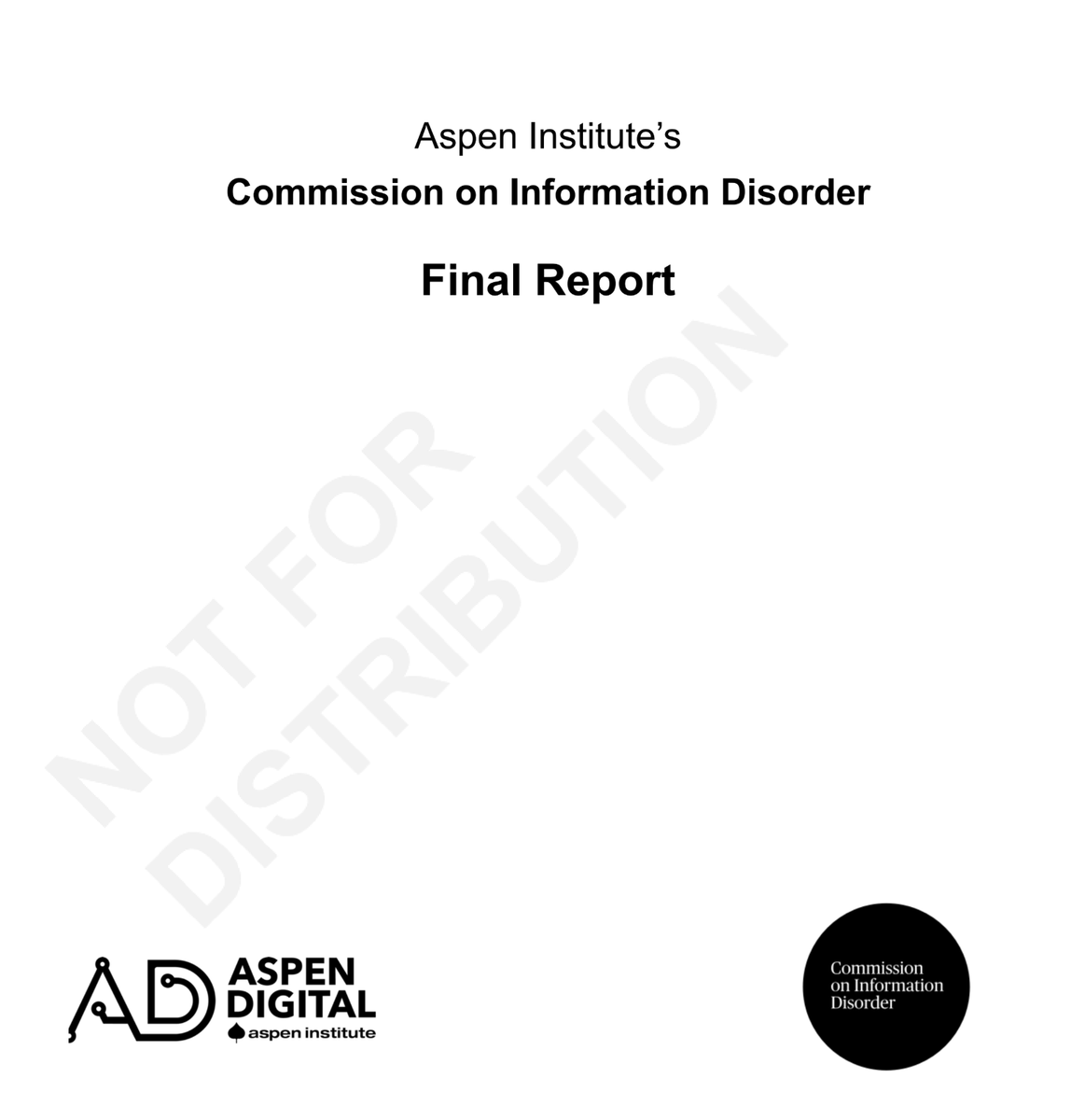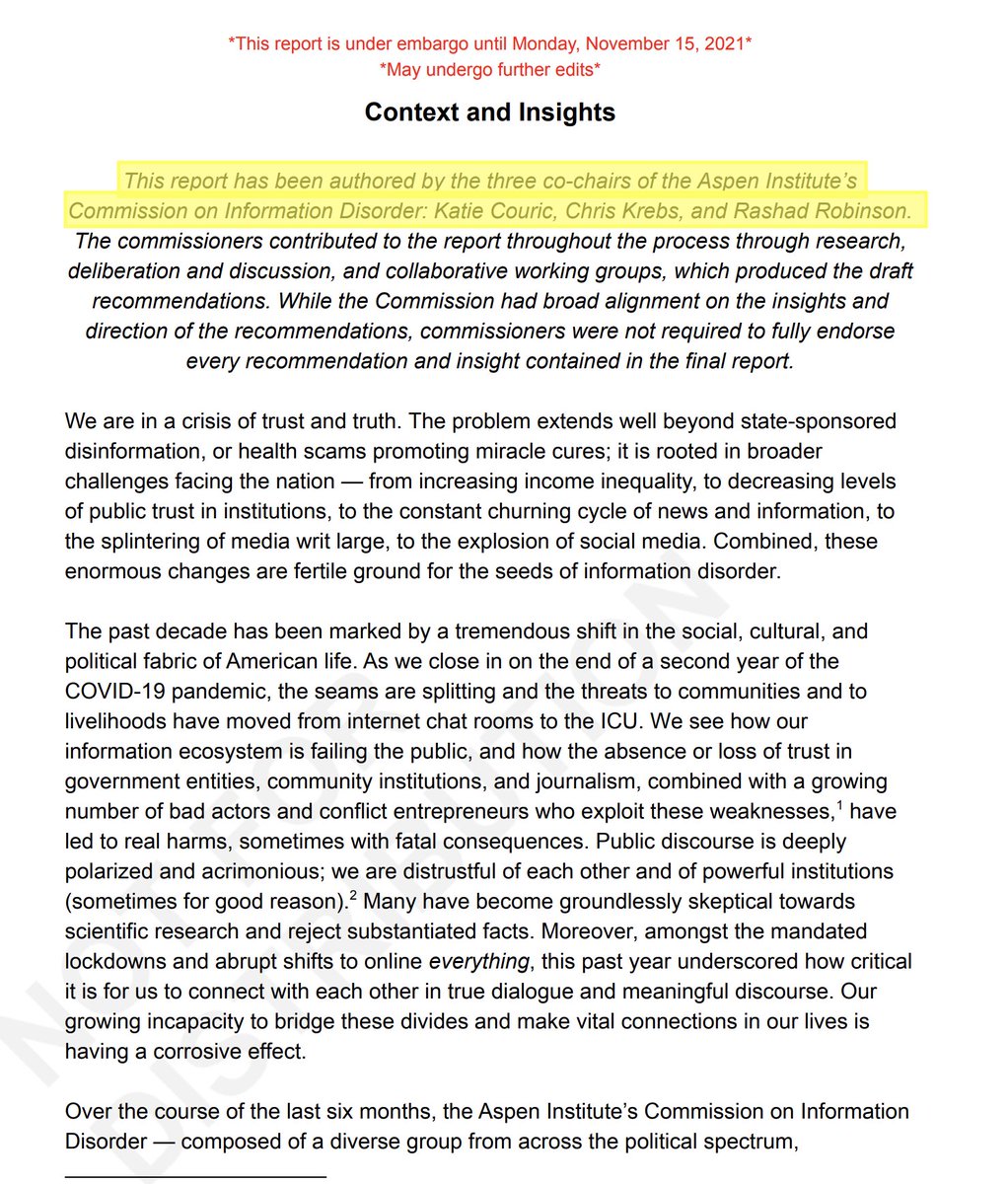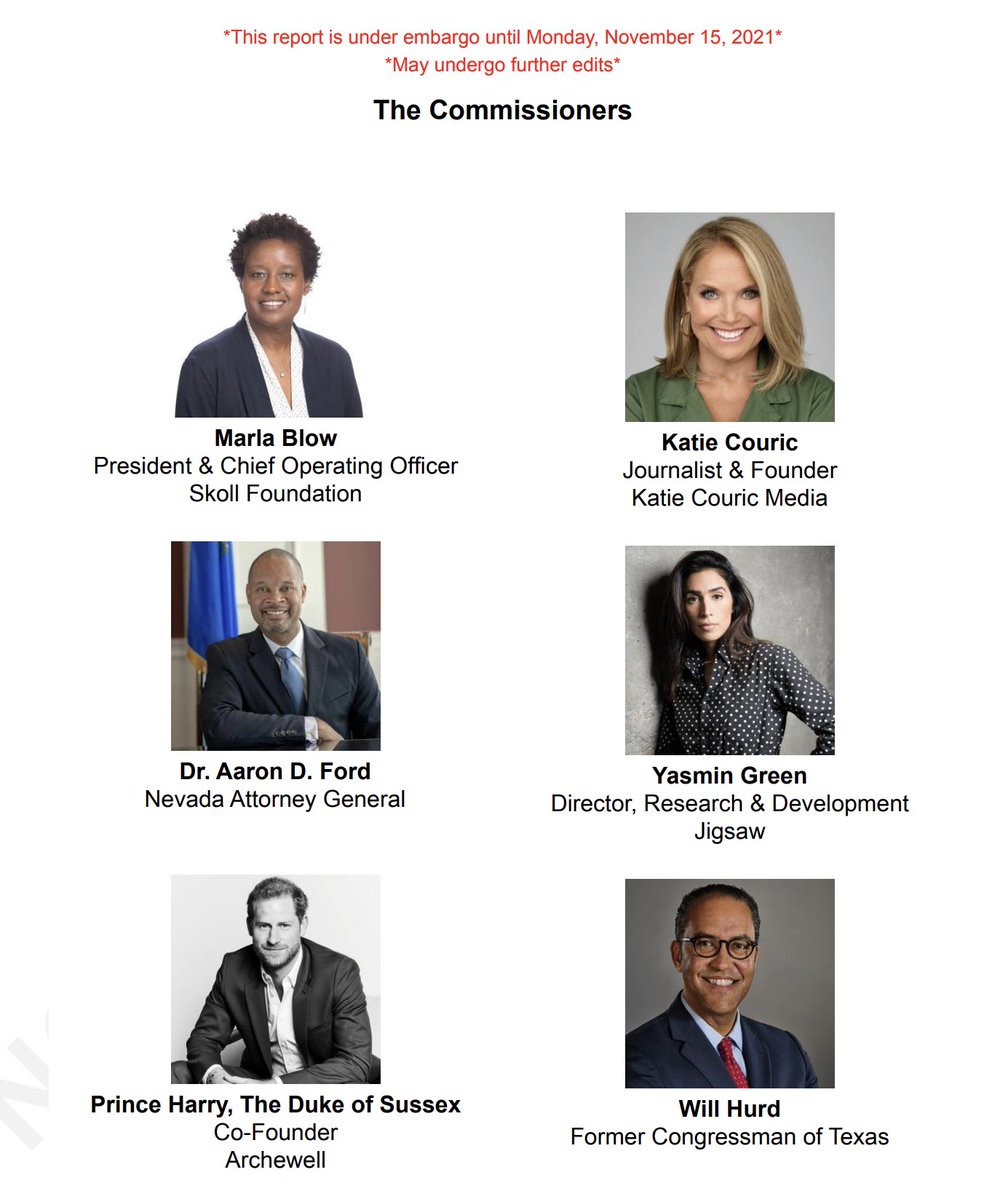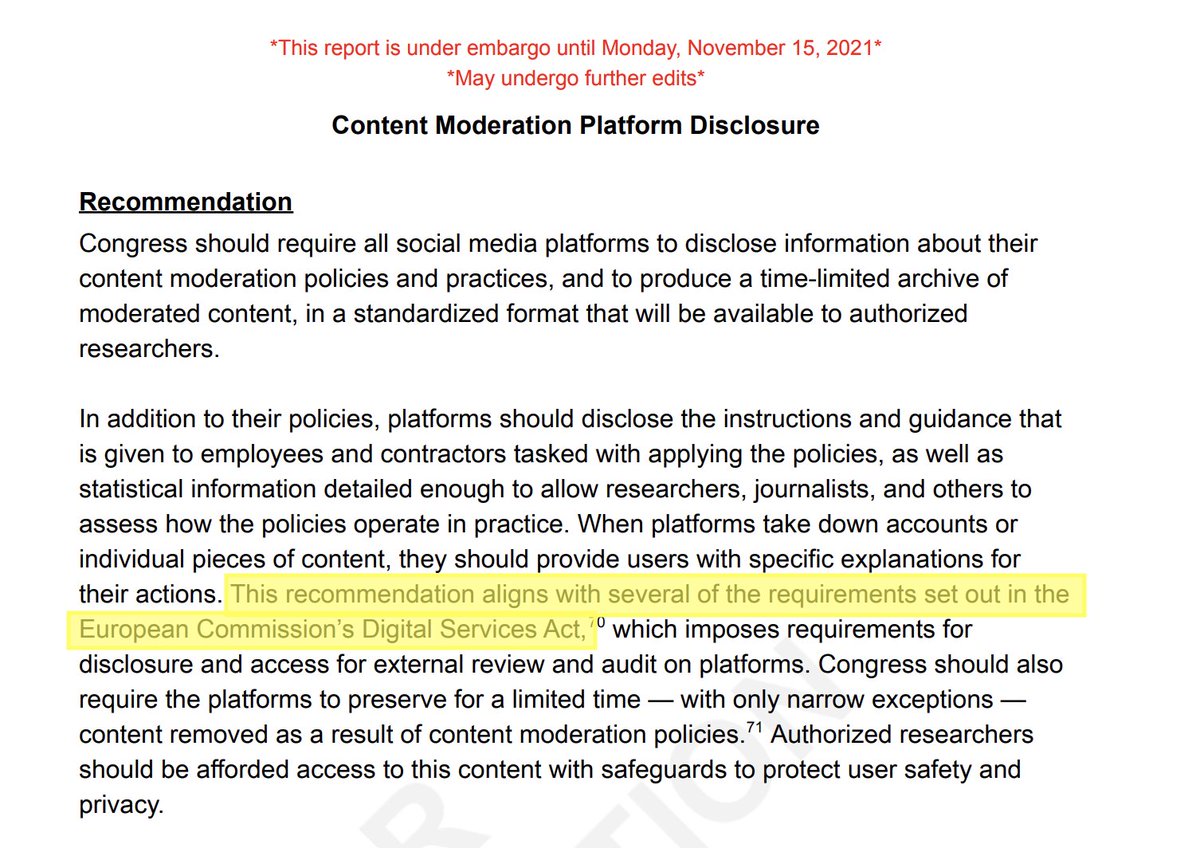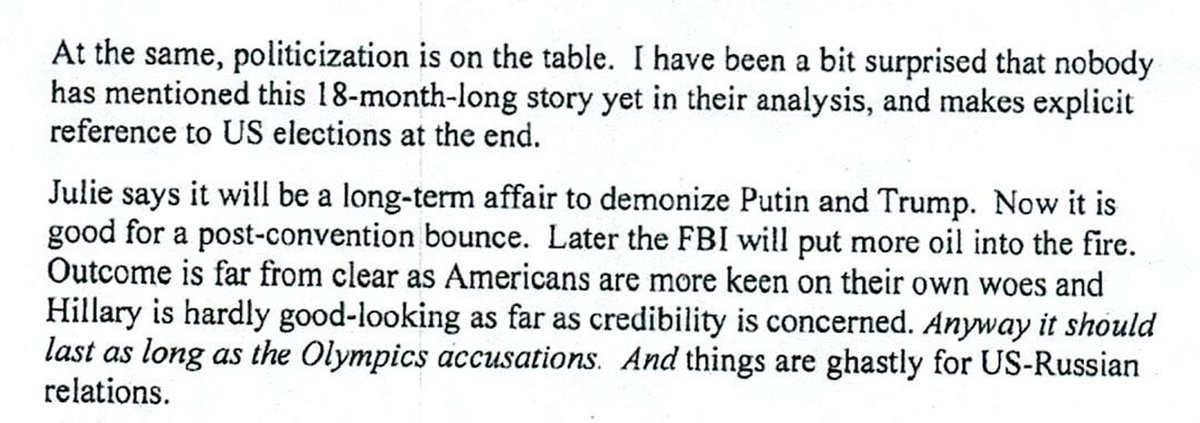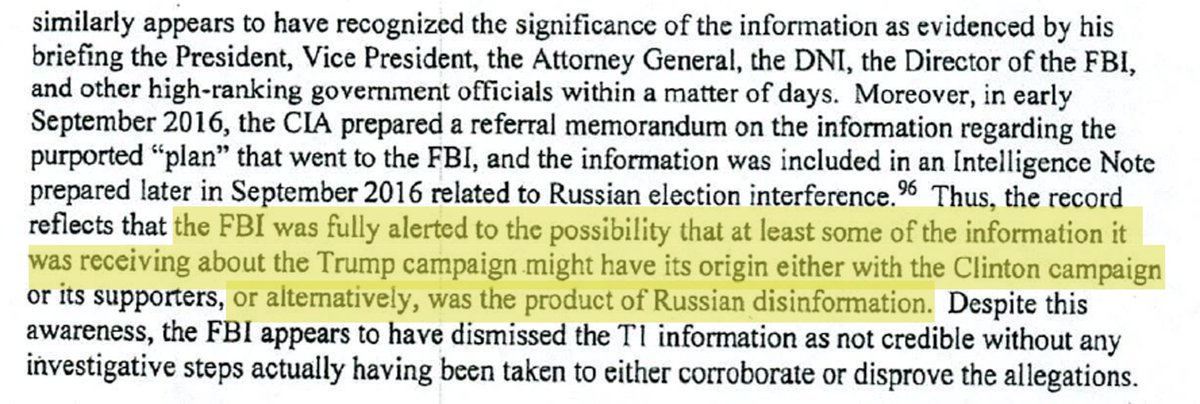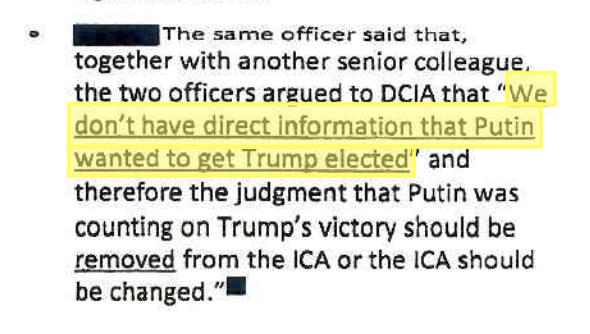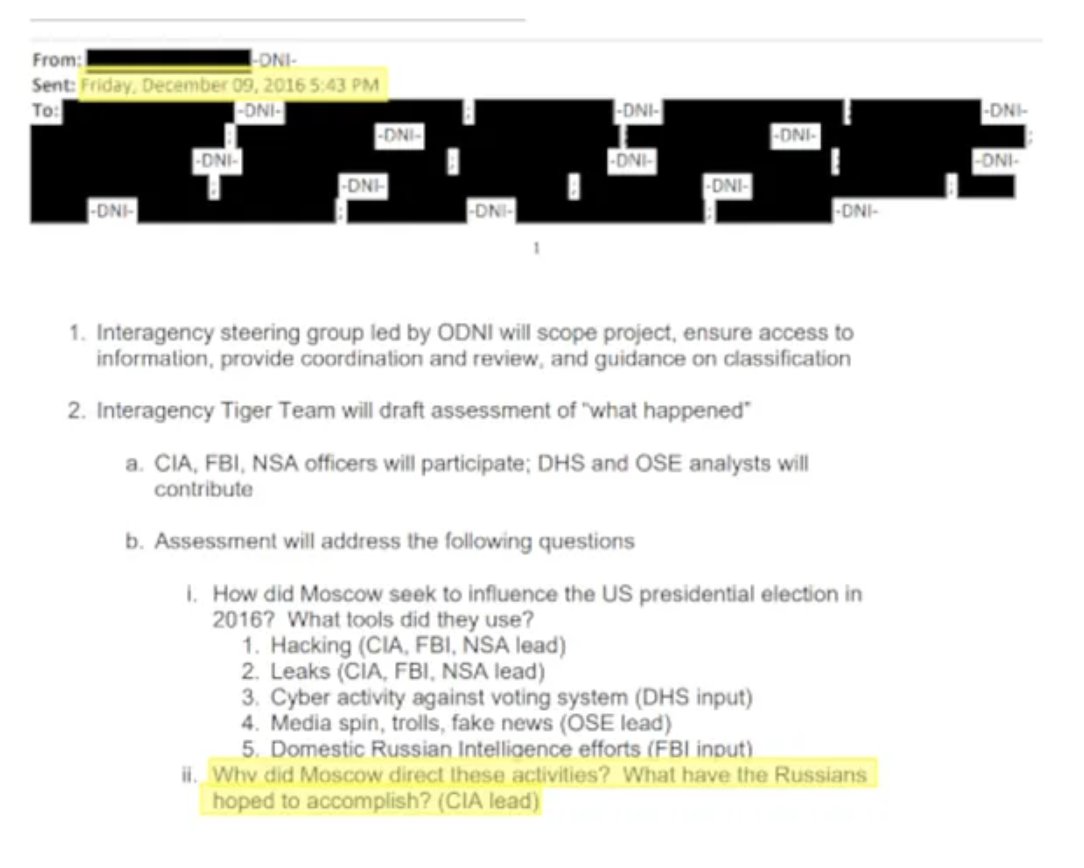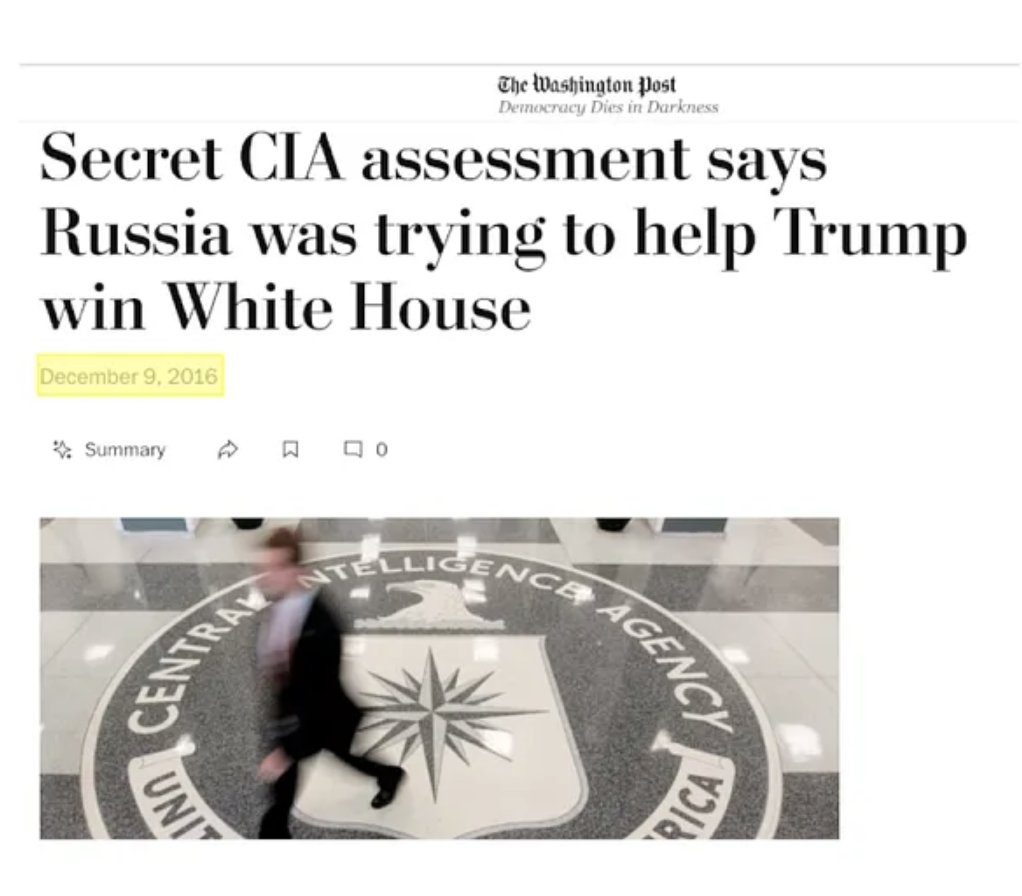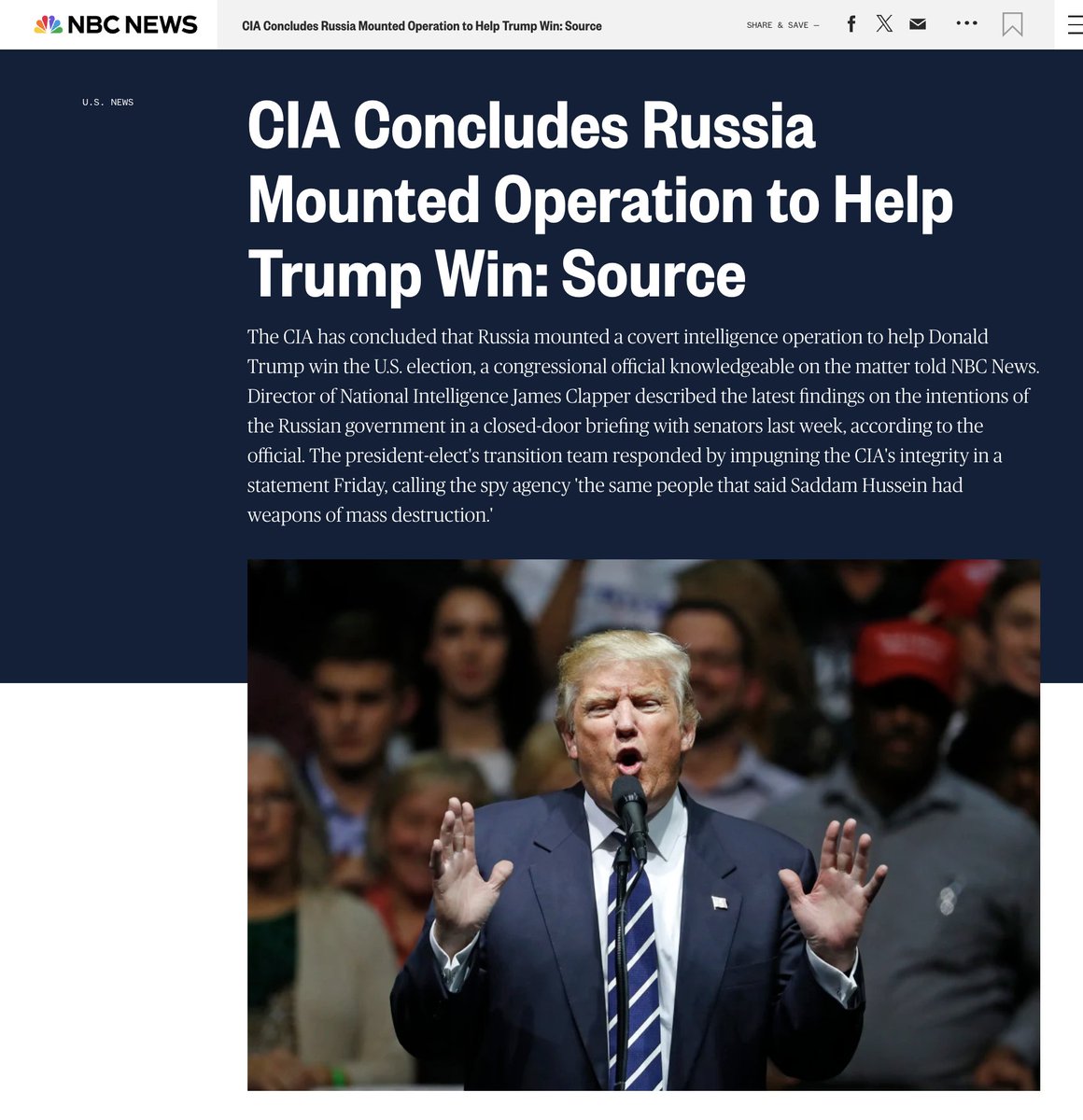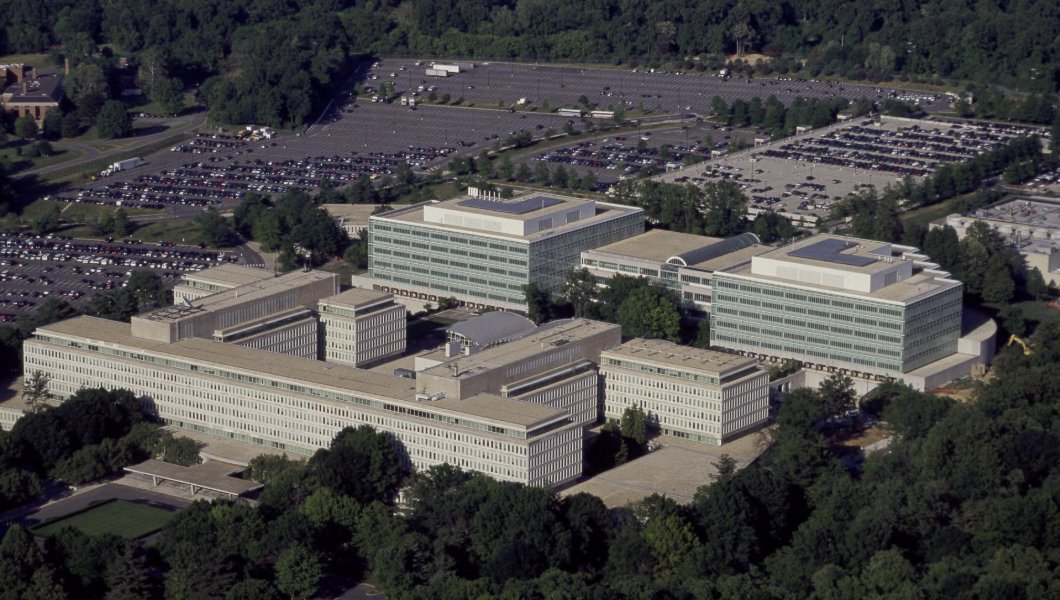1.TWITTER FILES #19
The Great Covid-19 Lie Machine
Stanford, the Virality Project, and the Censorship of “True Stories”
The Great Covid-19 Lie Machine
Stanford, the Virality Project, and the Censorship of “True Stories”
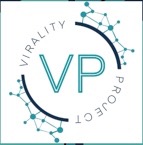
2.“The release of Dr. Anthony Fauci’s Spring 2020 emails… has been used to exacerbate distrust in Dr. Fauci.”
“Increased distrust in Fauci’s expert guidance.”

“Increased distrust in Fauci’s expert guidance.”
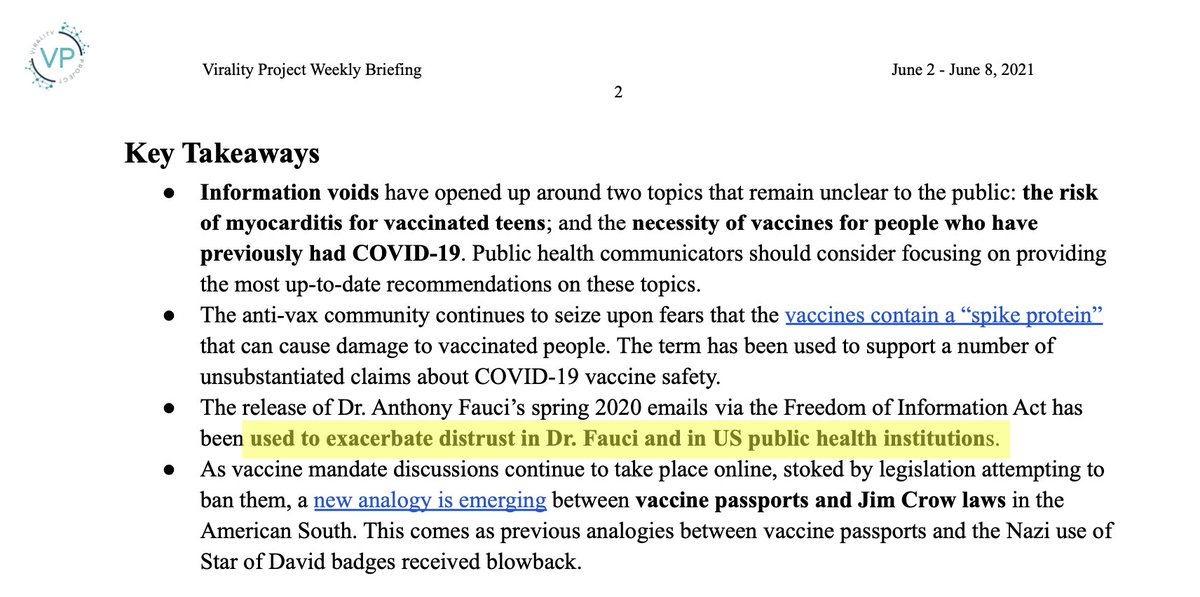

3.“Reports of vaccinated individuals contracting Covid-19 anyway”; “natural immunity”; suggesting Covid-19 “leaked from a lab”; even “worrisome jokes”: 



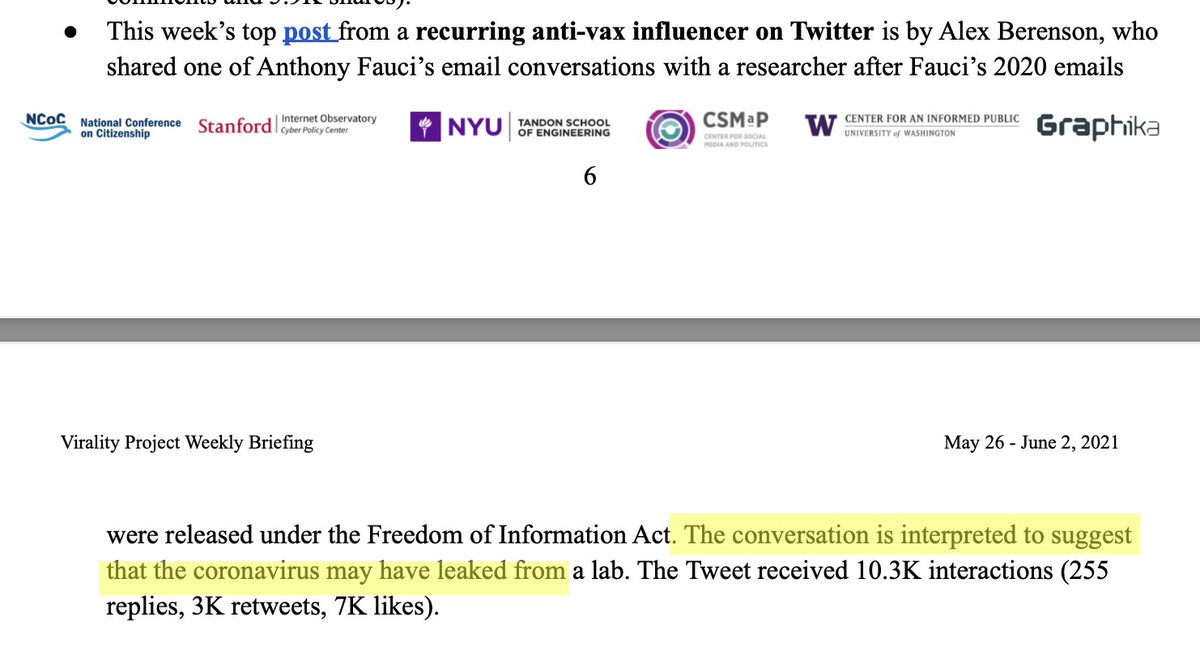

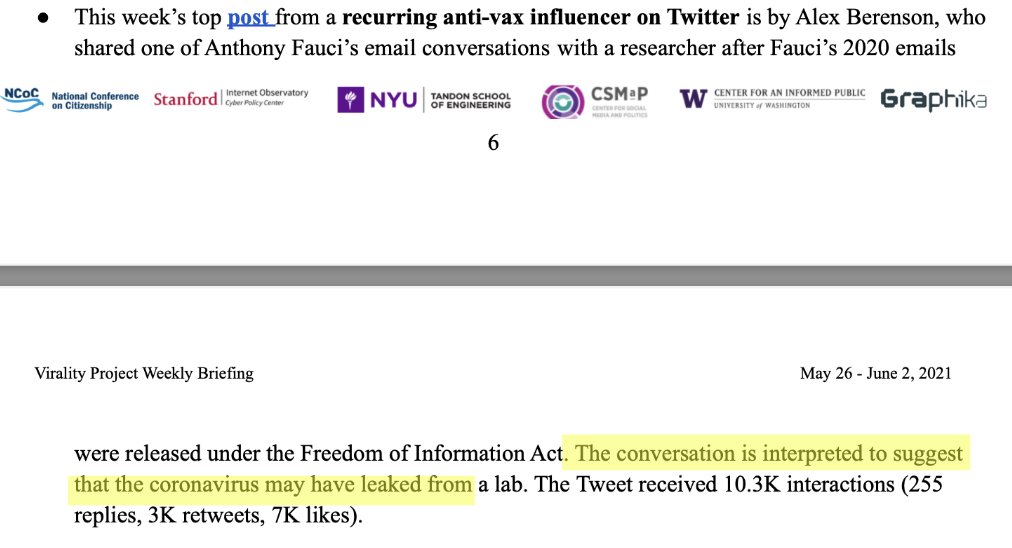
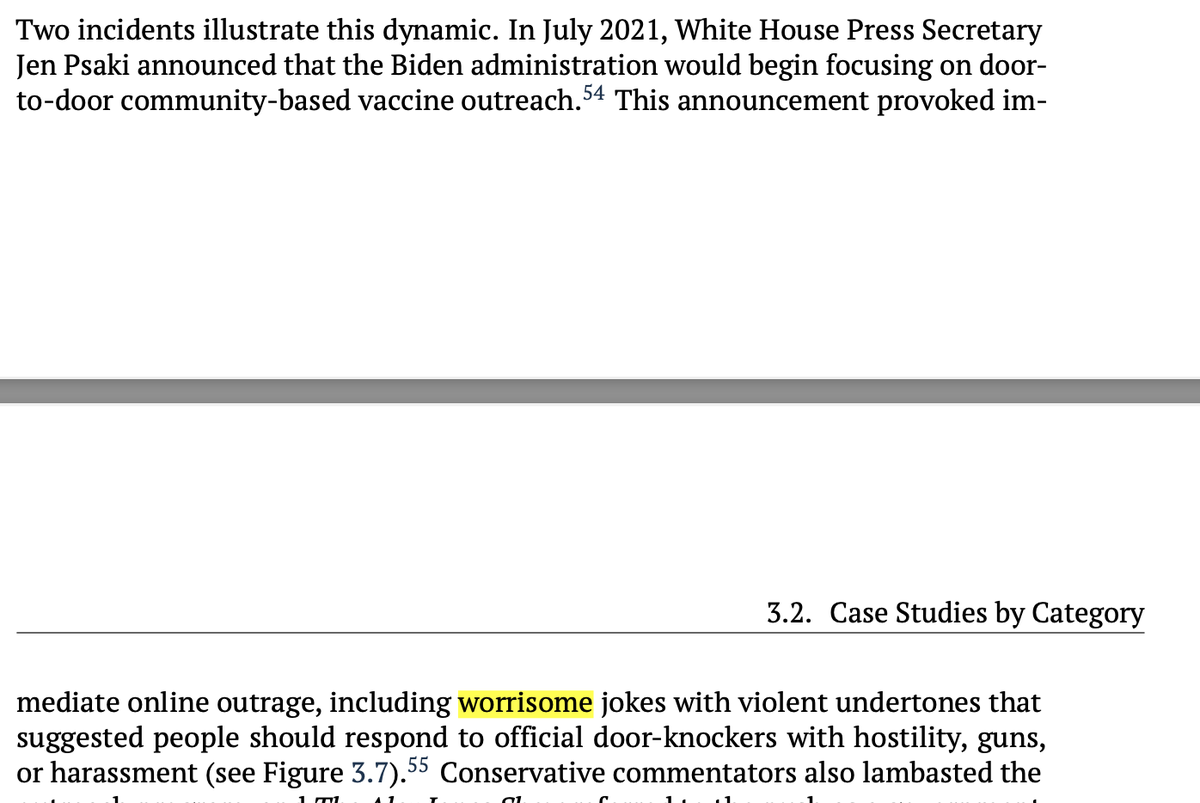
4.All were characterized as “potential violations” or disinformation “events” by the Virality Project, a sweeping, cross-platform effort to monitor billons of social media posts by Stanford University, federal agencies, and a slew of (often state-funded) NGOs.
5.Just before @ShellenbergerMD and I testified in the House last week, Virality Project emails were found in the #TwitterFiles describing “stories of true vaccine side effects” as actionable content. 

6.We’ve since learned the Virality Project in 2021 worked with government to launch a pan-industry monitoring plan for Covid-related content. At least six major Internet platforms were “onboarded” to the same JIRA ticketing system, daily sending millions of items for review.
7.Though the Virality Project reviewed content on a mass scale for Twitter, Google/YouTube, Facebook/Instagram, Medium, TikTok, and Pinterest, it knowingly targeted true material and legitimate political opinion, while often being factually wrong itself. 


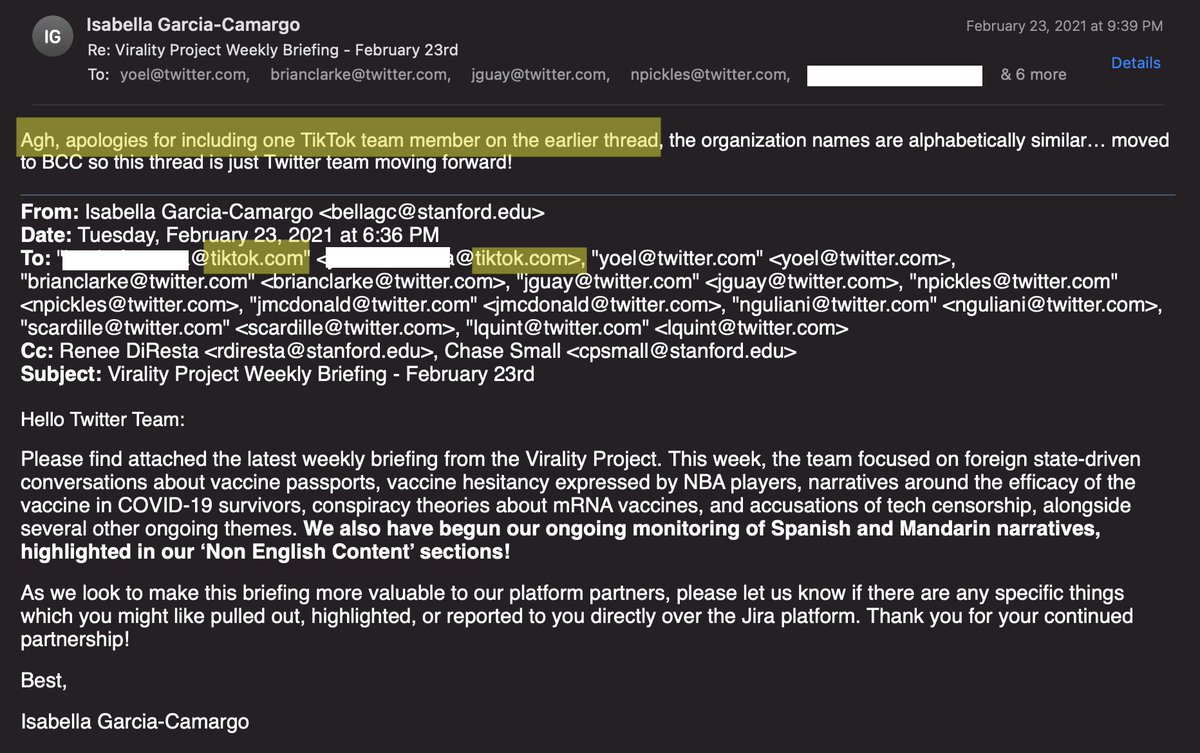
8.This story is important for two reasons. One, as Orwellian proof-of-concept, the Virality Project was a smash success. Government, academia, and an oligopoly of would-be corporate competitors organized quickly behind a secret, unified effort to control political messaging.
9.Two, it accelerated the evolution of digital censorship, moving it from judging truth/untruth to a new, scarier model, openly focused on political narrative at the expense of fact.
10.THE BEGINNING: On February 5, 2021, just after Joe Biden took office, Stanford wrote to Twitter to discuss the Virality Project. By the 17th, Twitter agreed to join and got its first weekly report on “anti-vax disinformation,” which contained numerous true stories. 
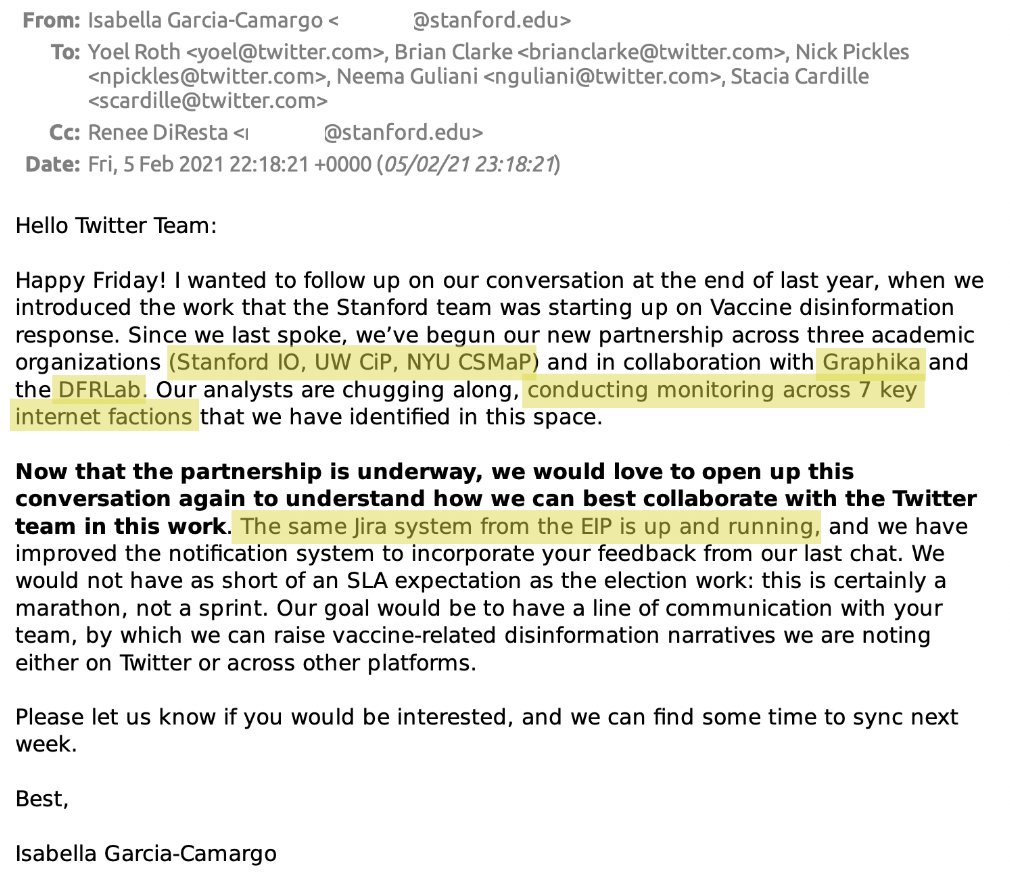
11. February 22, 2021: Stanford welcomed Twitter veterans like Yoel Roth and Brian Clarke, instructing them on how to join the group JIRA system. You can watch the friendly welcome video here: stanford.zoom.us/rec/play/3kP-3…
12. March 2, 2021: "We are beginning to ramp up our notification process to platforms.” In addition to the top-7 platforms, VP soon gained "visibility" to “alternative platforms such as Gab, Parler, Telegram, and Gettr” – near-total surveillance of the social media landscape. 
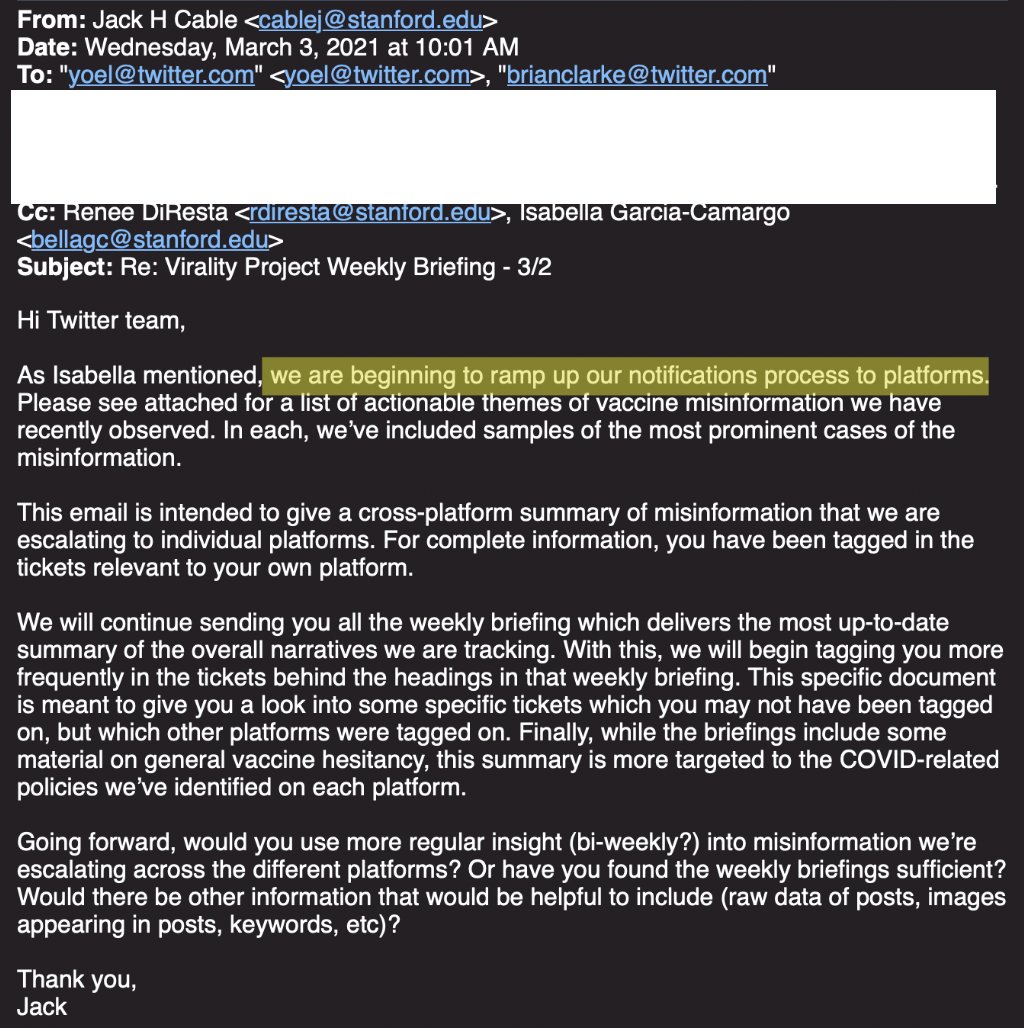
13.Through July of 2020, Twitter’s internal guidance on Covid-19 required a story be “demonstrably false” or contain an “assertion of fact” to be actioned. But the Virality Project, in partnership with the CDC, pushed different standards. 



14.VP told Twitter that “true stories that could fuel hesitancy,” including things like “celebrity deaths after vaccine” or the closure of a central NY school due to reports of post-vaccine illness, should be considered "Standard Vaccine Misinformation on Your Platform." 
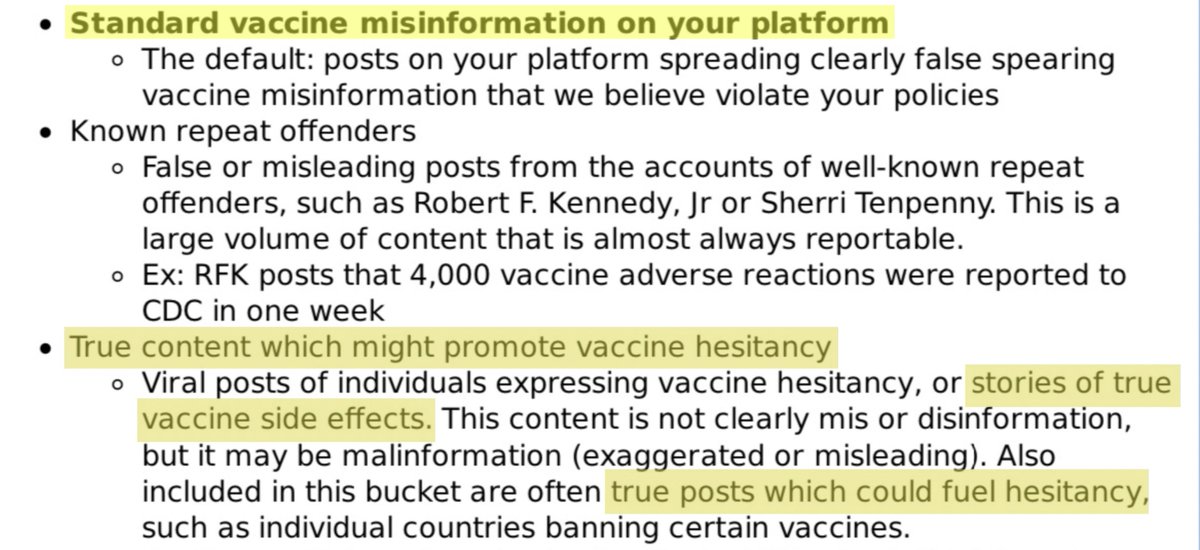
15. In one email to Twitter, VP addressed what it called the “vaccine passport narrative,” saying “concerns” over such programs “have driven a larger anti-vaccination narrative about the loss of rights and freedoms.”
This was framed as a "misinformation" event.
This was framed as a "misinformation" event.
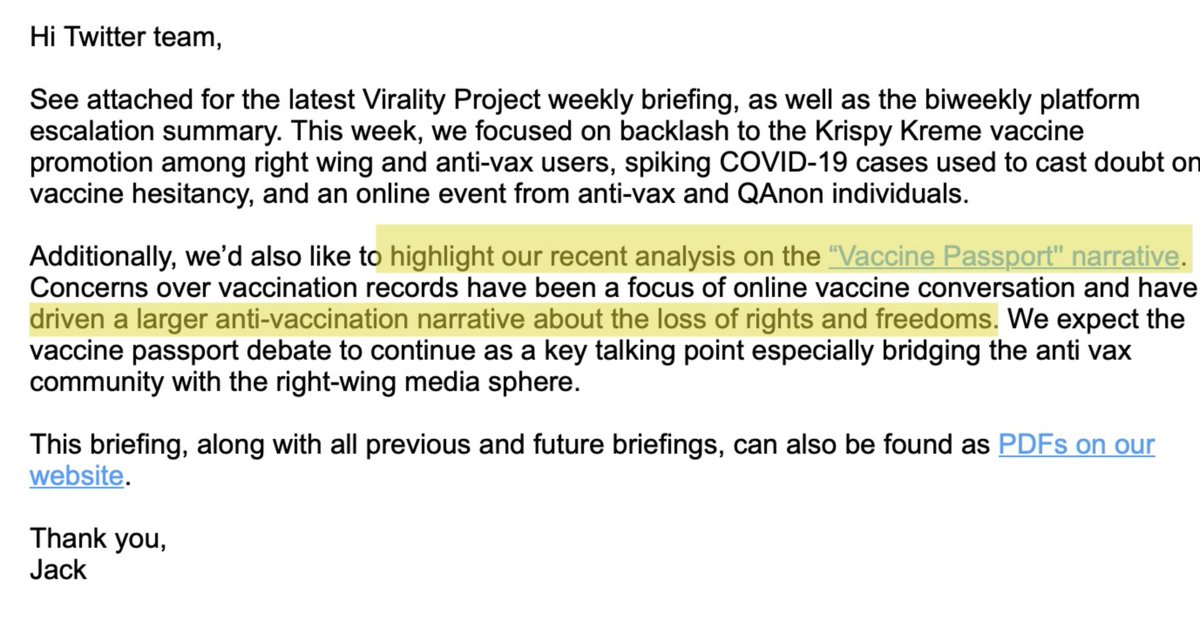
16.VP routinely framed real testimonials about side effects as misinformation, from “true stories” of blood clots from AstraZeneca vaccines to a New York Times story about vaccine recipients who contracted the blood disorder thrombocytopenia. 

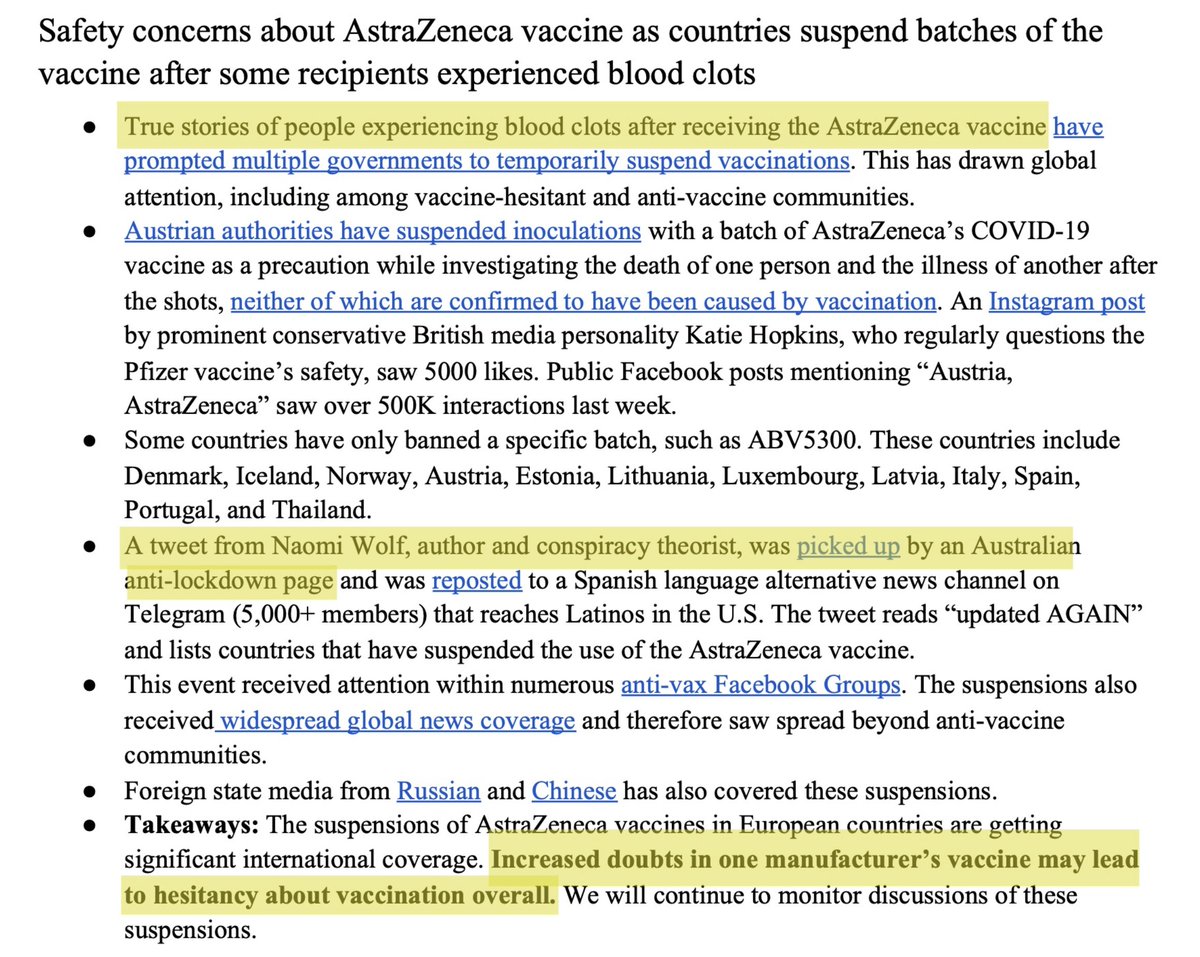
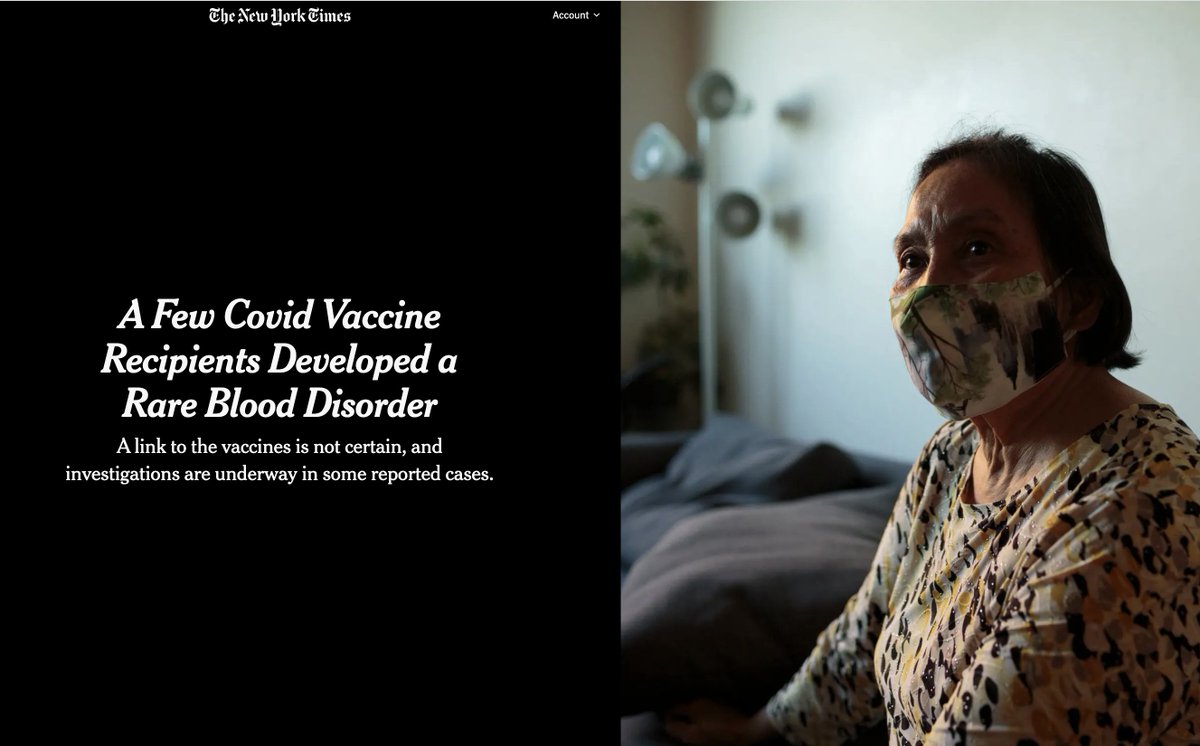
17.By March of 2021, Twitter personnel were aping VP language, describing "campaigns against vaccine passports," "fear of mandatory immunizations," and "misuse of official reporting tools" as "potential violations." 
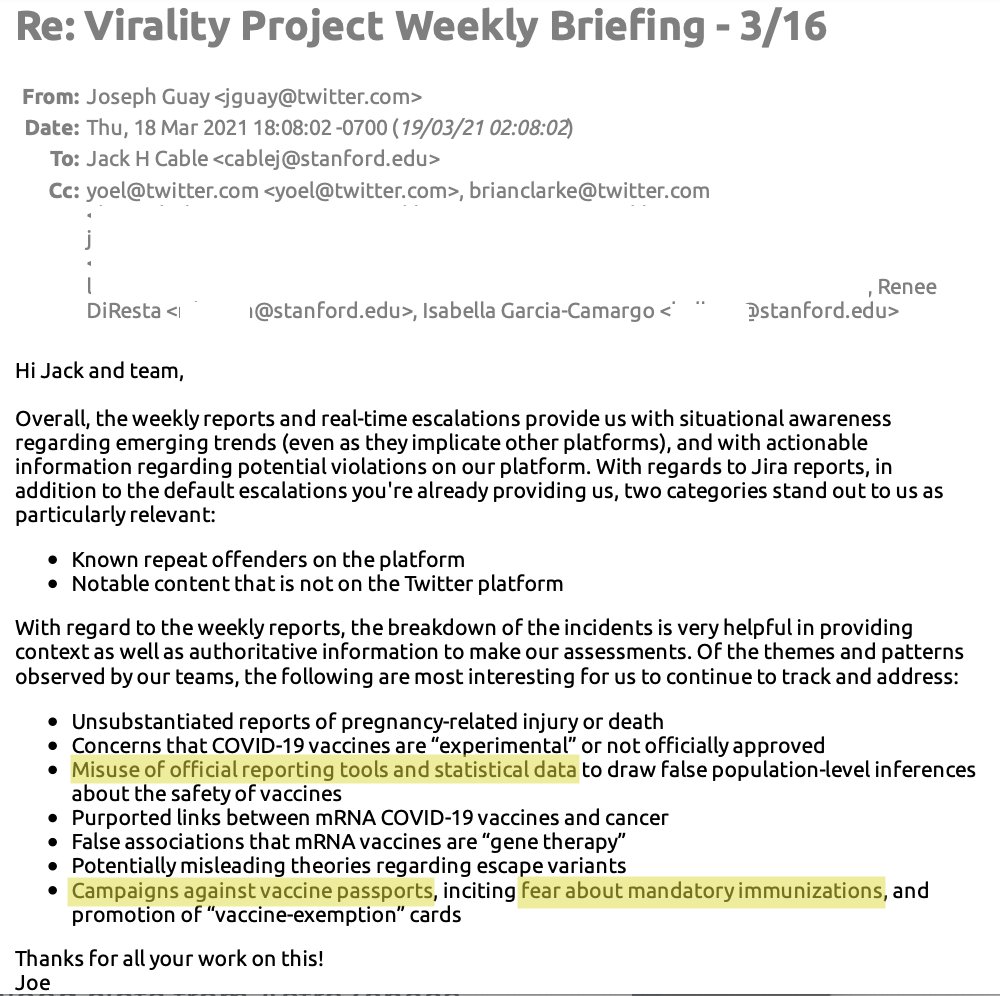
18. This echoed a report to Twitter by the Global Engagement Center re “Russia-linked” accounts: “While this account posts legitimate and accurate COVID-19 updates... it posts content that attacks Italian politicians, the EU, and the United States.” drive.google.com/file/d/1u2412d… 
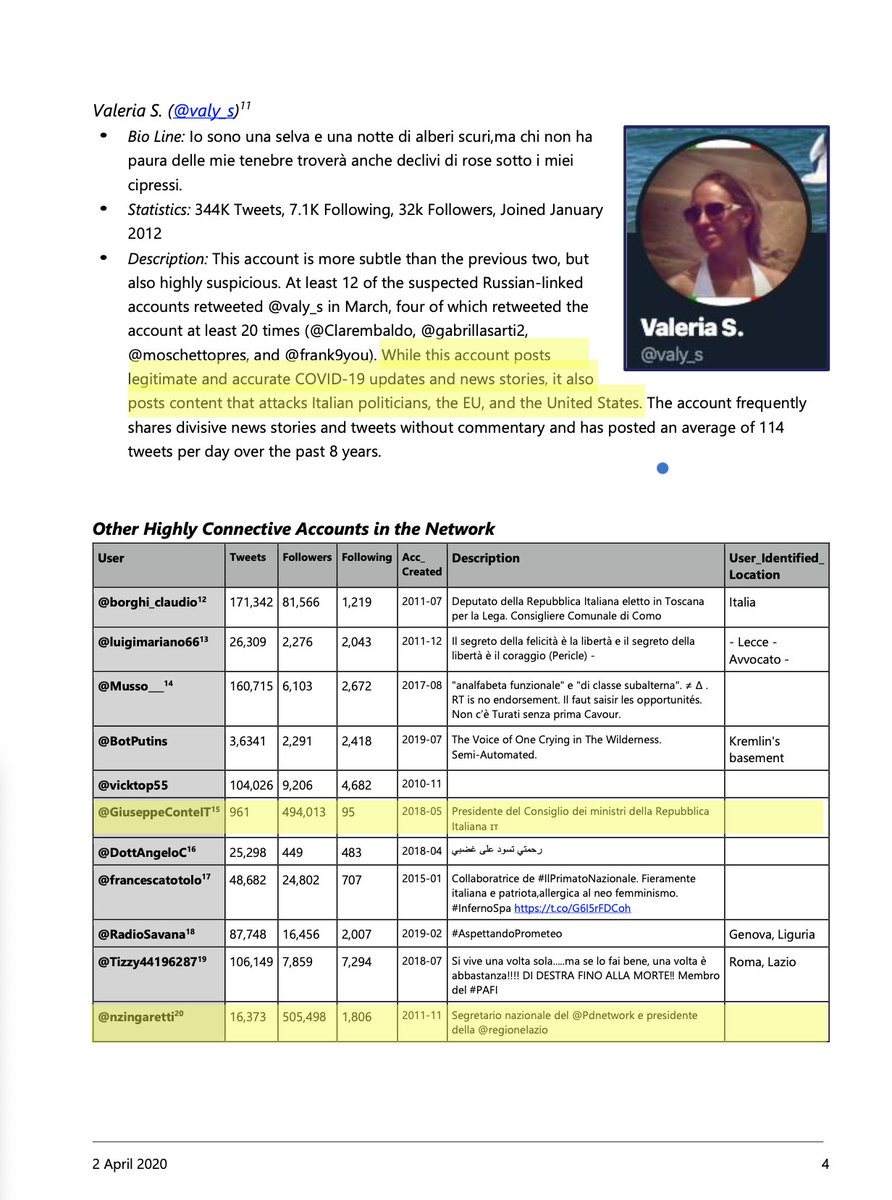
19.That same GEC report found in the #TwitterFiles identified former Italian Prime Minister Giuseppe Conte, and former Italian Democratic Party Secretary Nicola Zingaretti (who’s been compared to Bernie Sanders) as “highly connective” accounts in a “Russia-linked” network. 


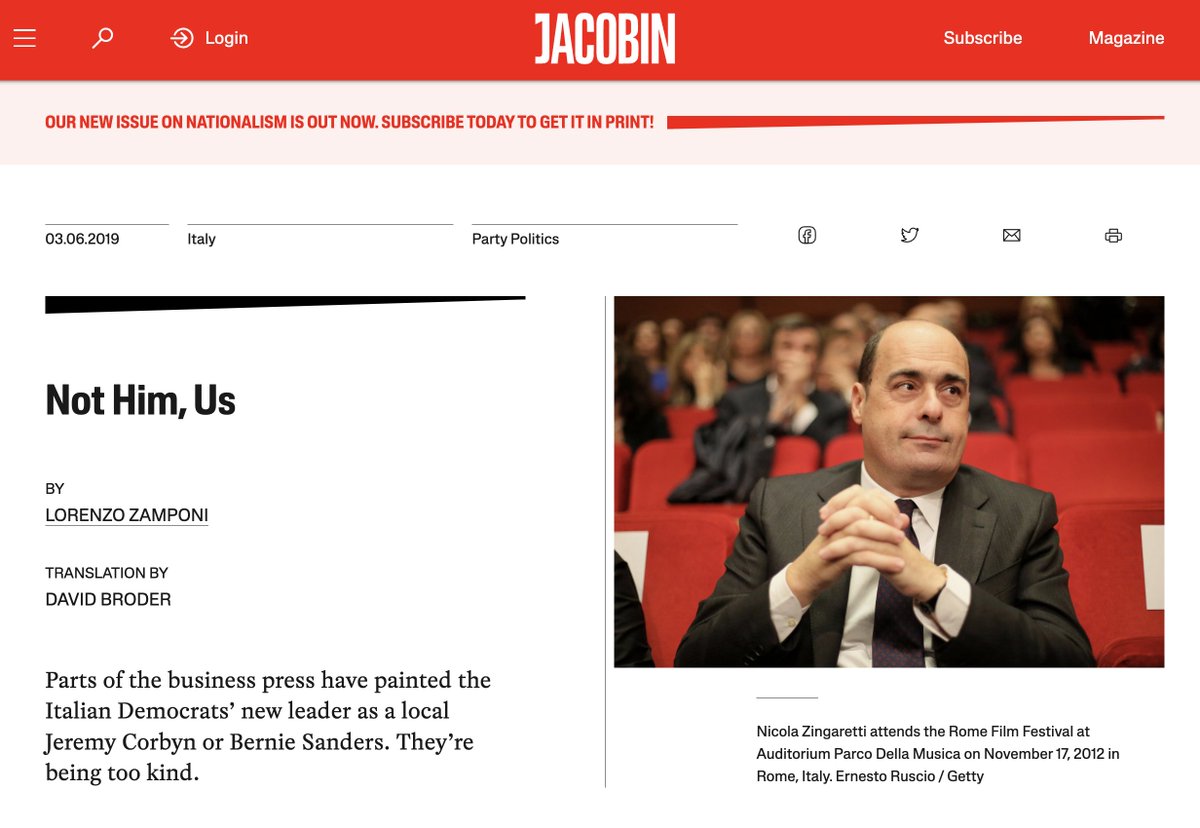
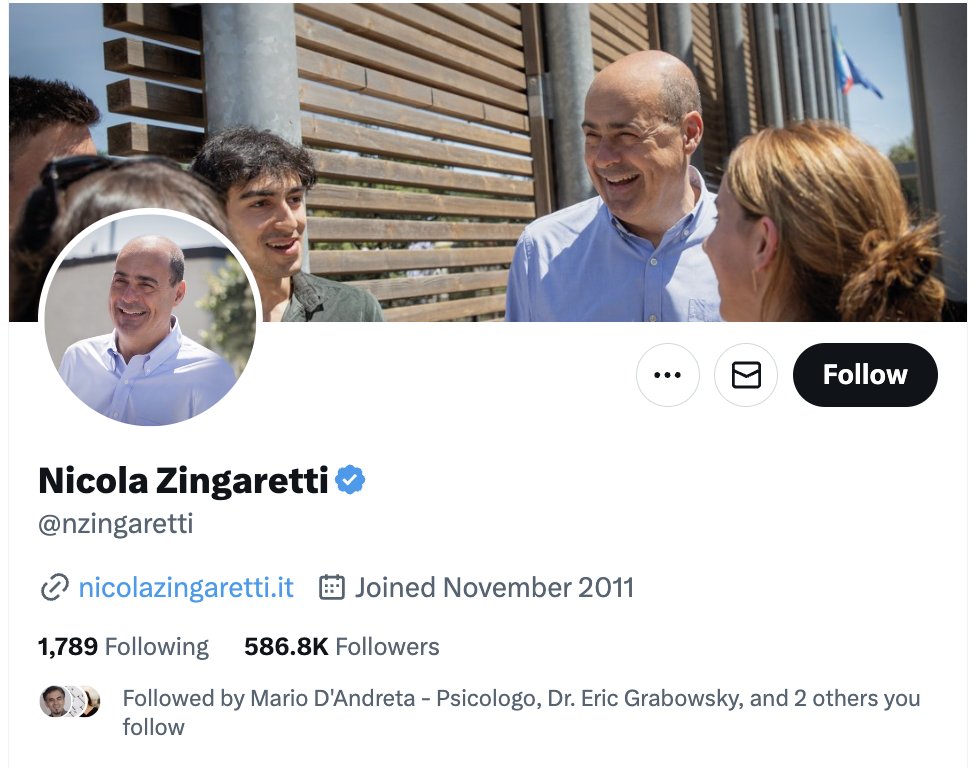
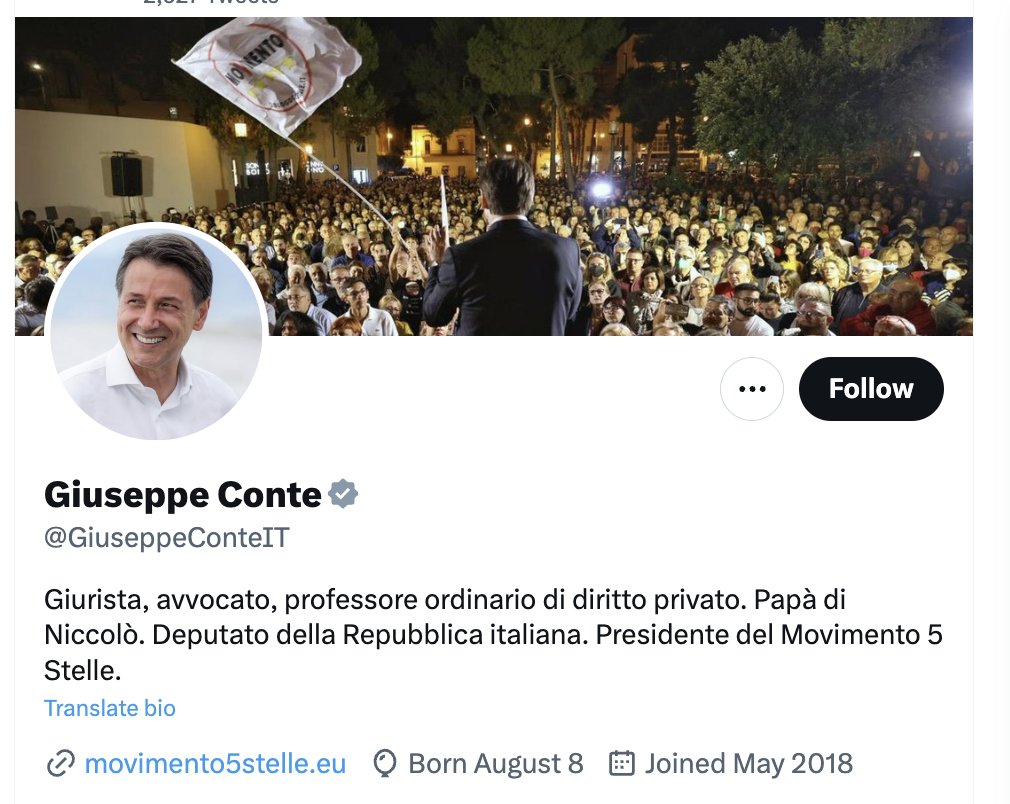
20.The Virality Project helped pioneer the gauging of “disinformation” by audience response. If the post-vaccine death of a black woman named Drene Keyes in Virginia went unnoticed inspired mostly “anti-vaccine” comments on local media, it became a “disinformation” event. 

21.VP warned against people “just asking questions,” implying it was a tactic “commonly used by spreaders of misinformation." It also described a "Worldwide Rally for Freedom planned over Telegram" as a disinformation event. 

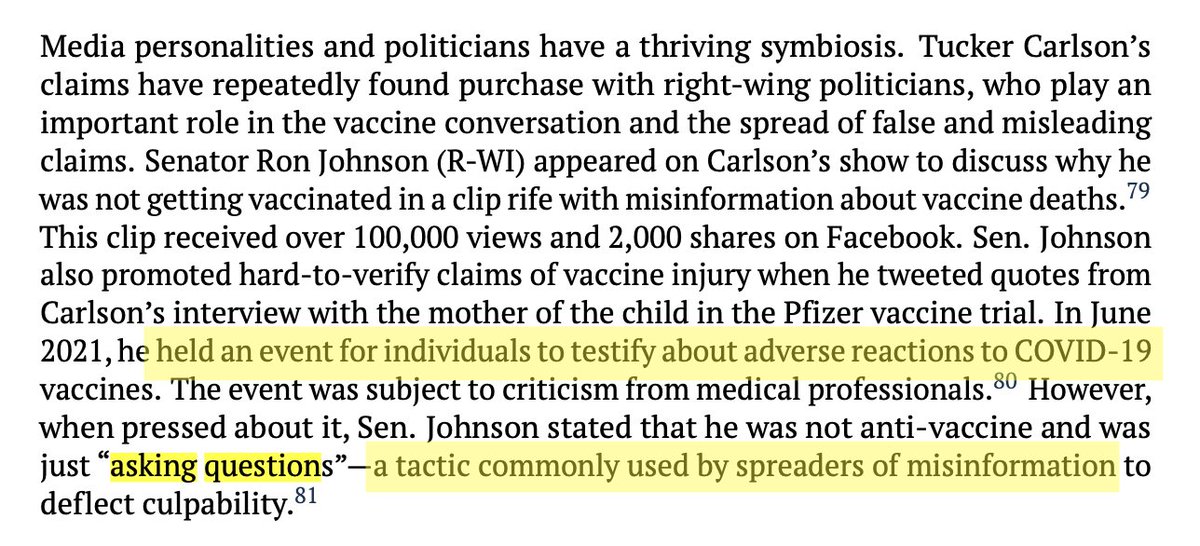
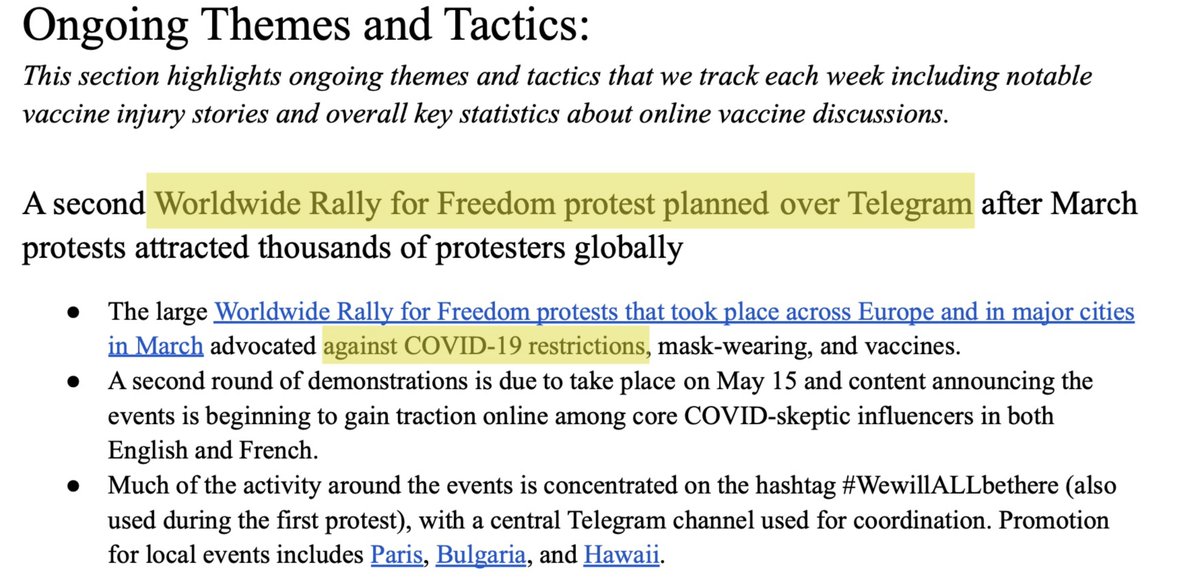
22."ALMOST ALWAYS REPORTABLE" It encouraged platforms to target people, not posts, using Minority Report-style “pre-crime” logic. Describing “repeat offenders” like Robert Kennedy, Jr., it spoke of a “large volume of content that is almost always reportable.” 

23.VP was repeatedly, extravagantly wrong. In one email to Twitter on “misinformation,” it spoke of wanting to “hone in” on an “increasingly popular narrative about natural immunity.” 
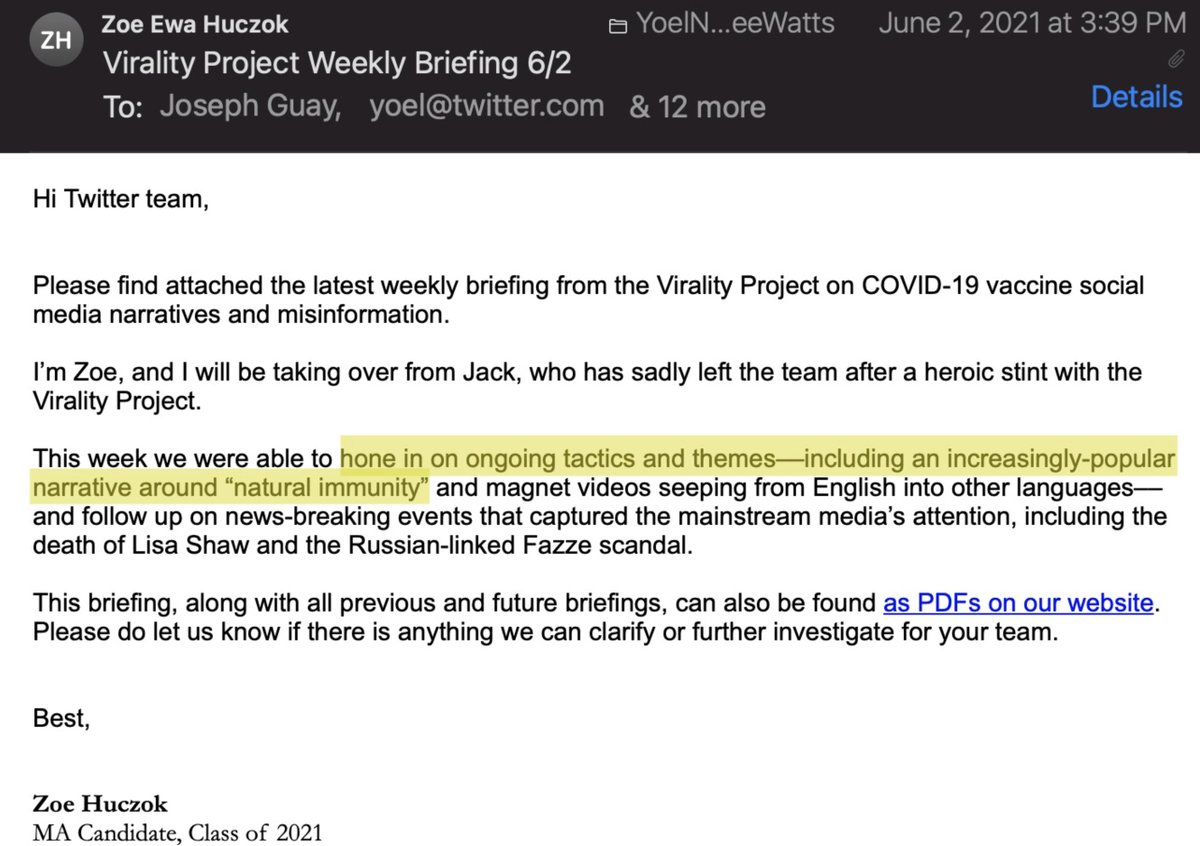
24.The VP in April 2021 mistakenly described “breakthrough” infections as “extremely rare events” that should not be inferred to mean “vaccines are ineffective.” 
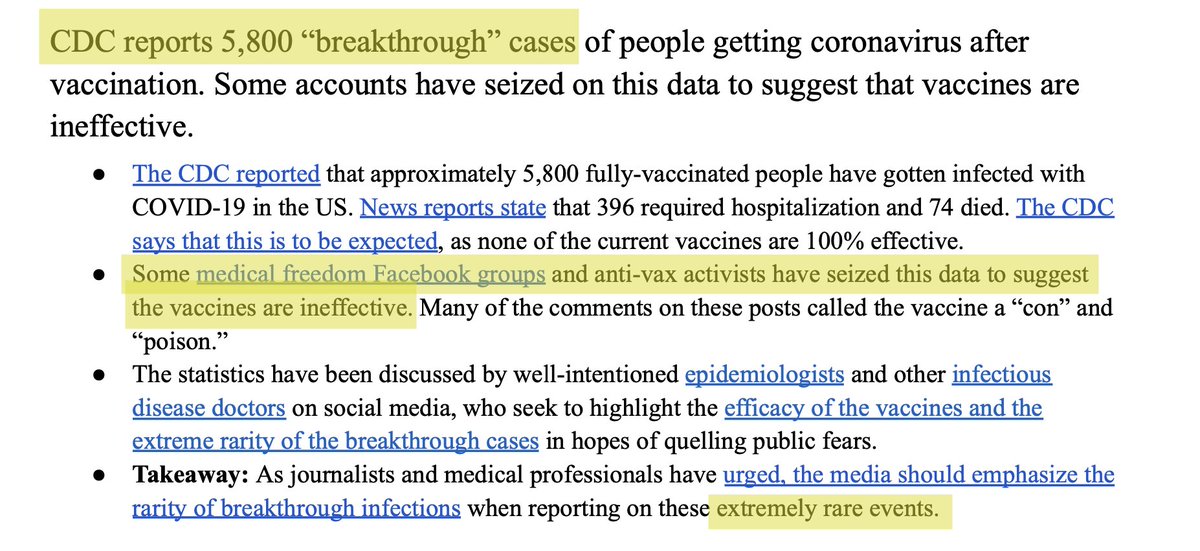
25.Later, when “the CDC changed its methodology for counting Covid-19 cases among vaccinated people,” only counting those resulting in hospitalization or death, VP complained that “anti-vaccine” accounts RFK Jr. and “WhatsHerFace” retweeted the story to suggest “hypocrisy.” 
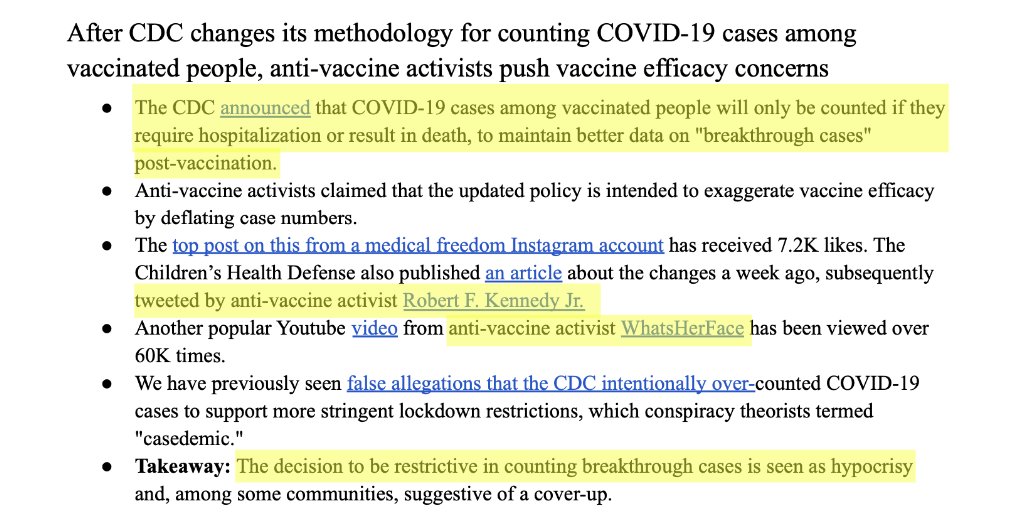
27.In a chilling irony, the VP ran searches for the term “surveillance state.” As an unaccountable state-partnered bureaucracy secretly searched it out, the idea that “vaccines are part of a surveillance state” won its own thoughtcrime bucket: “conspiracy.” 
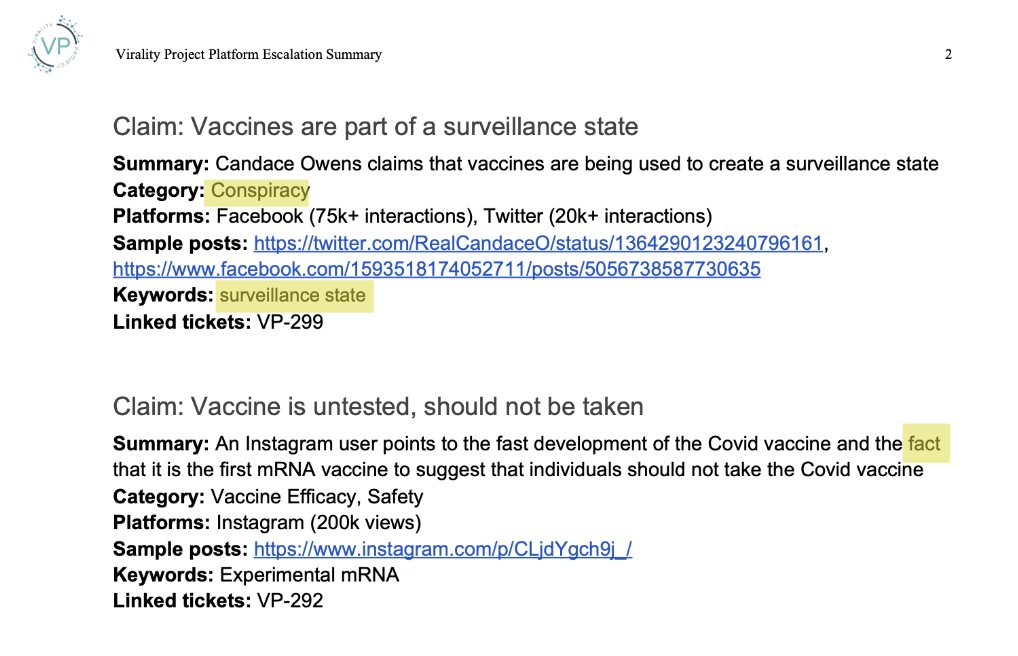
28.After about a year, on April 26, 2022, the VP issued a report calling for a “rumor-control mechanism to address nationally trending narratives,” and a “Misinformation and Disinformation Center of Excellence” to be housed within CISA, at the Department of Homeland Security. 


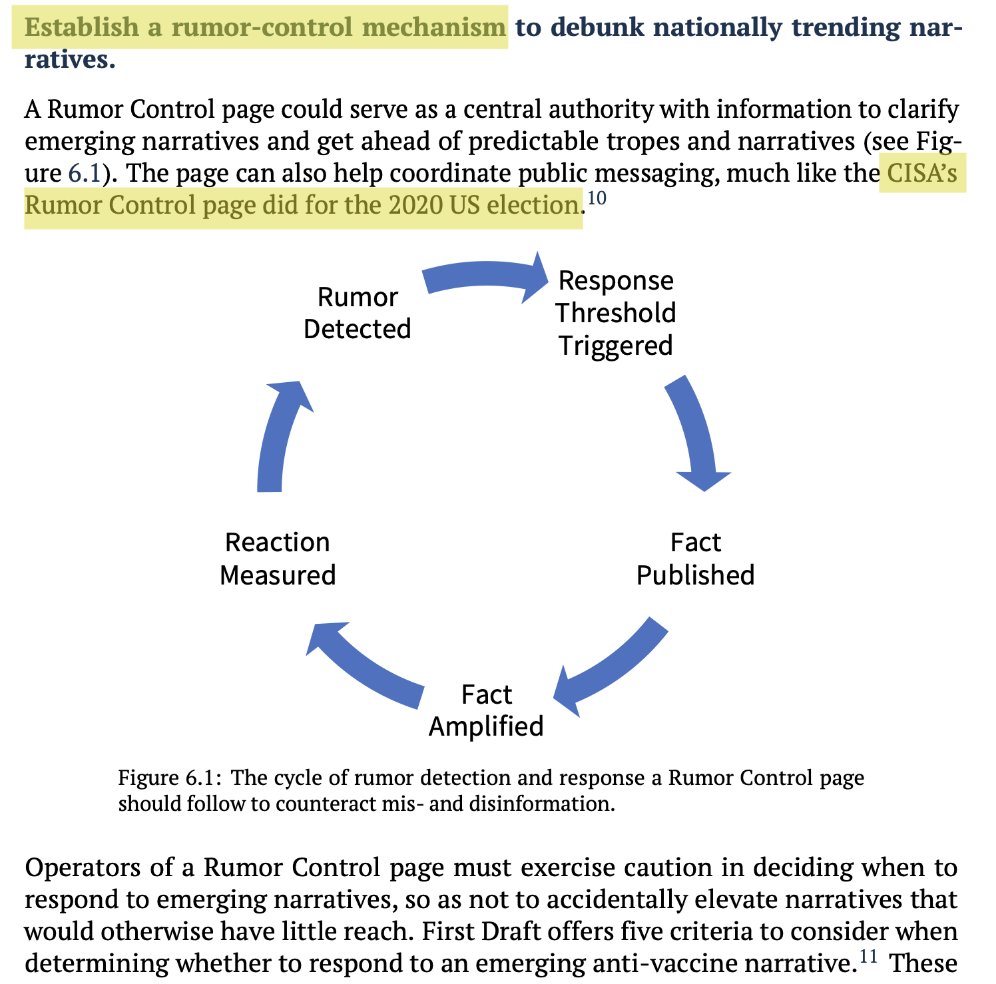
29. The next day, April 27, 2022, DHS Secretary Alejandro Mayorkas announced in a House Appropriations Subcommittee hearing that a “Disinformation Governance Board” had been created, to be headed by the singing censor, Nina Jankowitz.
30.Even in its final report, VP claimed it was misinformation to suggest the vaccine does not prevent transmission, or that governments are planning to introduce vaccine passports. Both things turned out to be true.
31.The Virality Project was specifically not based on “assertions of fact,” but public submission to authority, acceptance of narrative, and pronouncements by figures like Anthony Fauci. The project's central/animating concept was, "You can't handle the truth."
32. One of its four core partners, Pentagon-funded Graphika, explained in a report about “Fauxi” that because the public cannot be trusted to make judgements on its own, it must be shielded from truths that might undermine its faith in authority. 
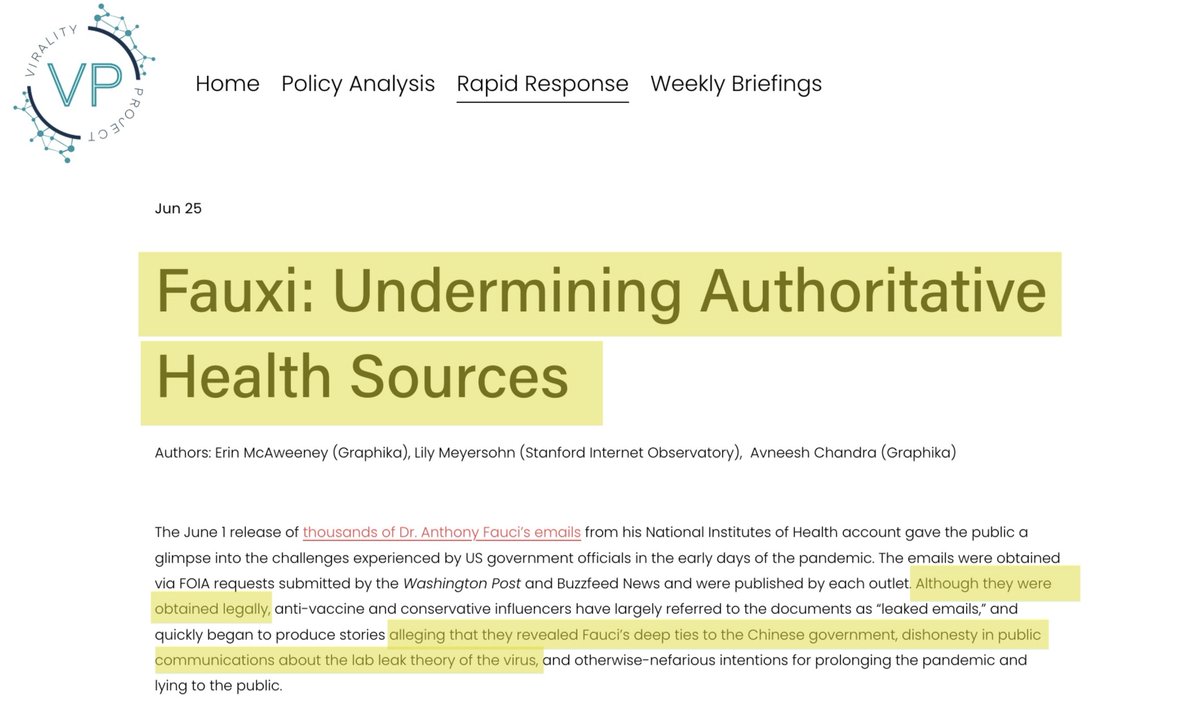
33. “This continual process of seeding doubt and uncertainty in authoritative voices,” Graphika wrote, in a report sent to Twitter, “leads to a society that finds it too challenging to identify what’s true or false.” 
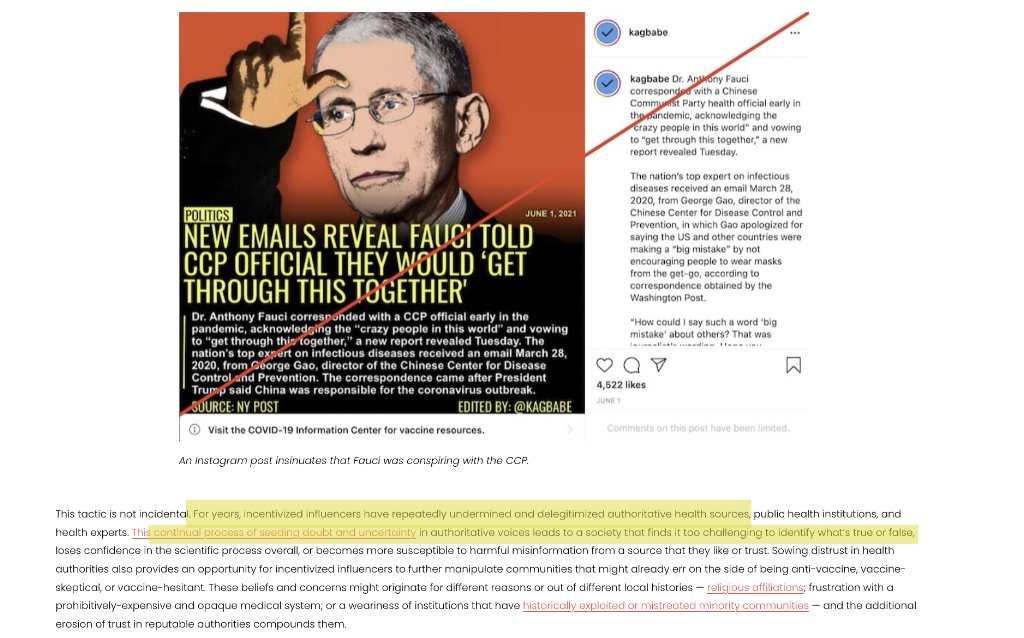
34.For this reason, the CDC-partnered project focused often on disinformation “events” involving Fauci, saying “release of Fauci’s emails foments distrust,” and deriding assertions he “misled the public.” 
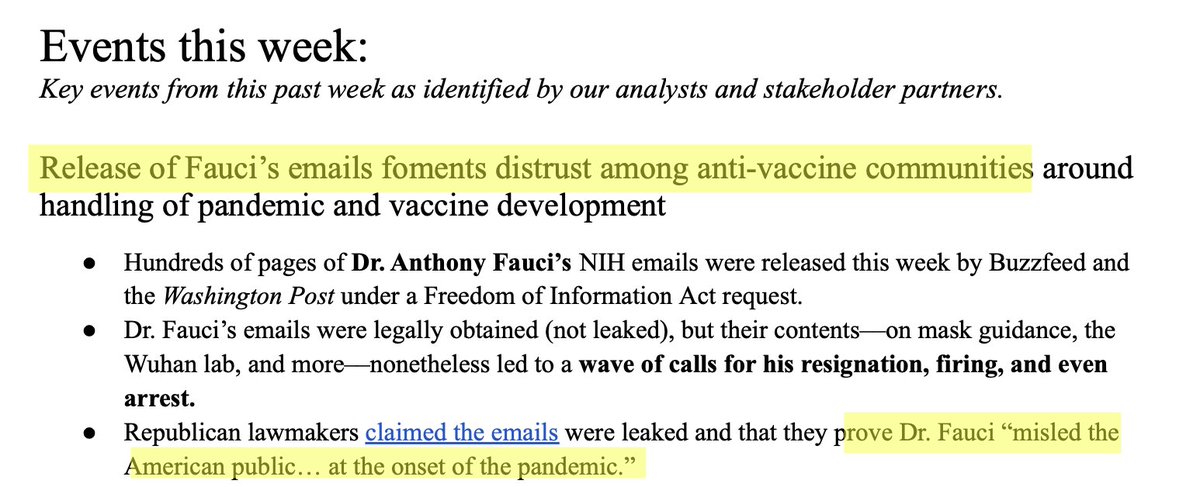
35.A Cleveland Clinic study showed previous infection offered the “same immunity” as the vaccine, but VP said discovery was susbservient to narrative: “Whether or not... scientific consensus is changing, ‘natural immunity’ is a key narrative… among anti-vaccine activists.” 

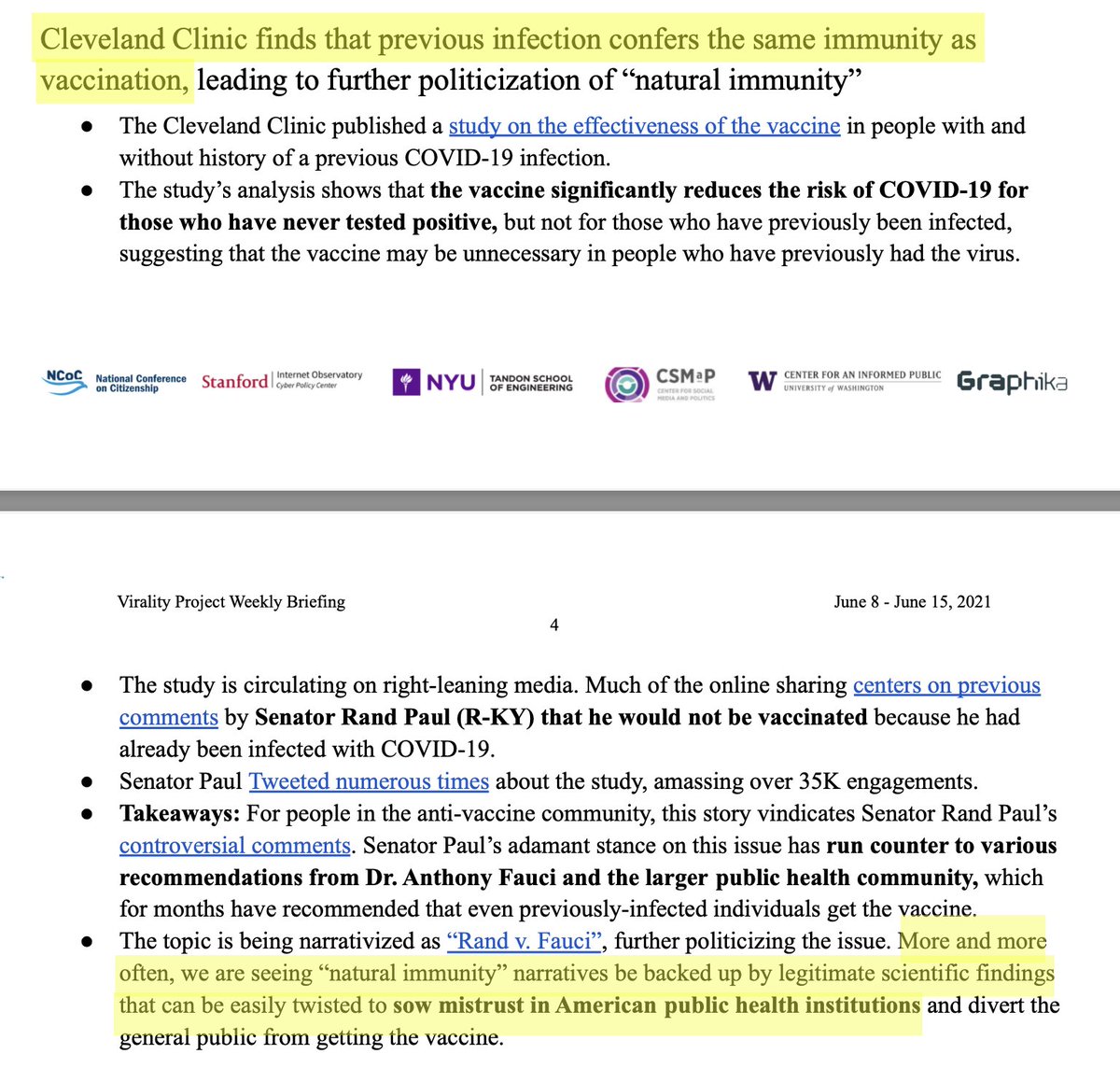
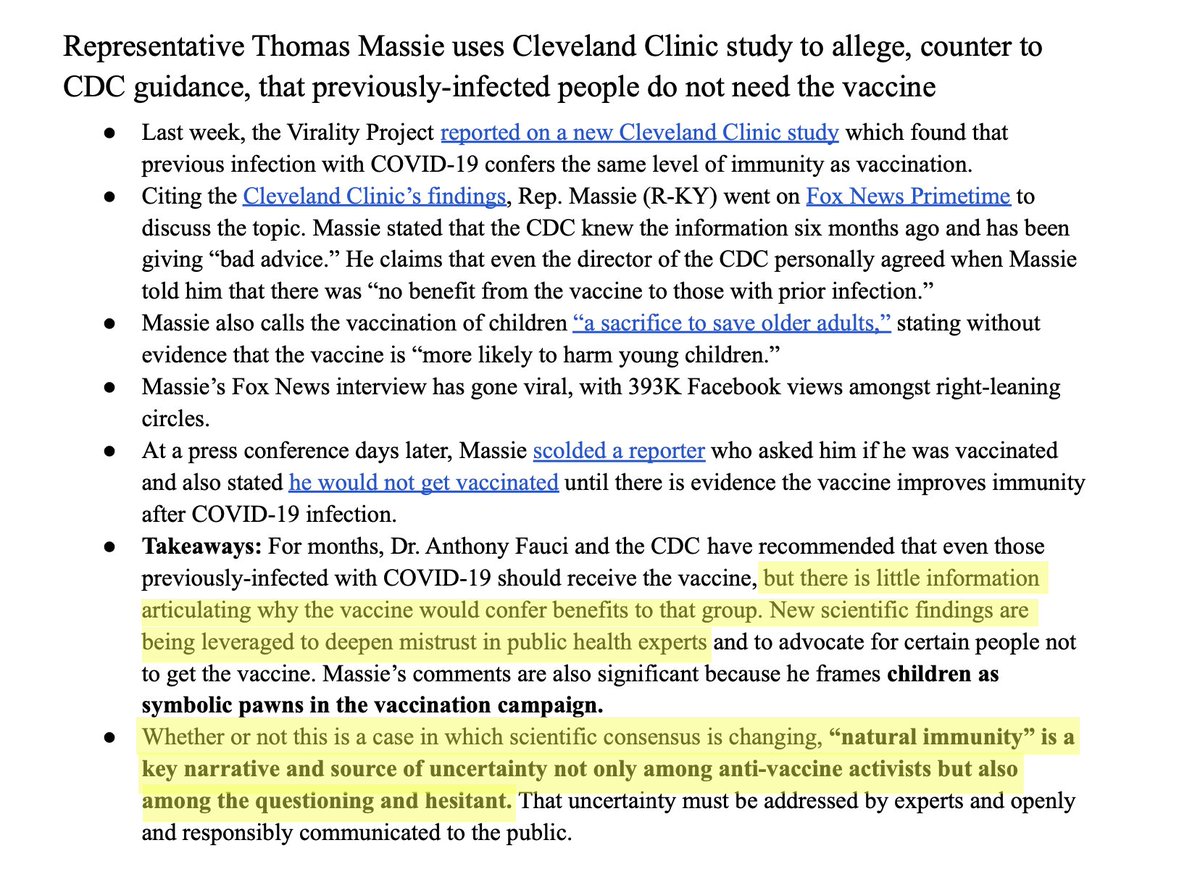
36."OFTEN TRUE CONTENT" The Virality Project communications mirror those produced in the recent court case Louisiana vs Biden, which showed Facebook admitting to the WHO that it, too, was censoring true content. 
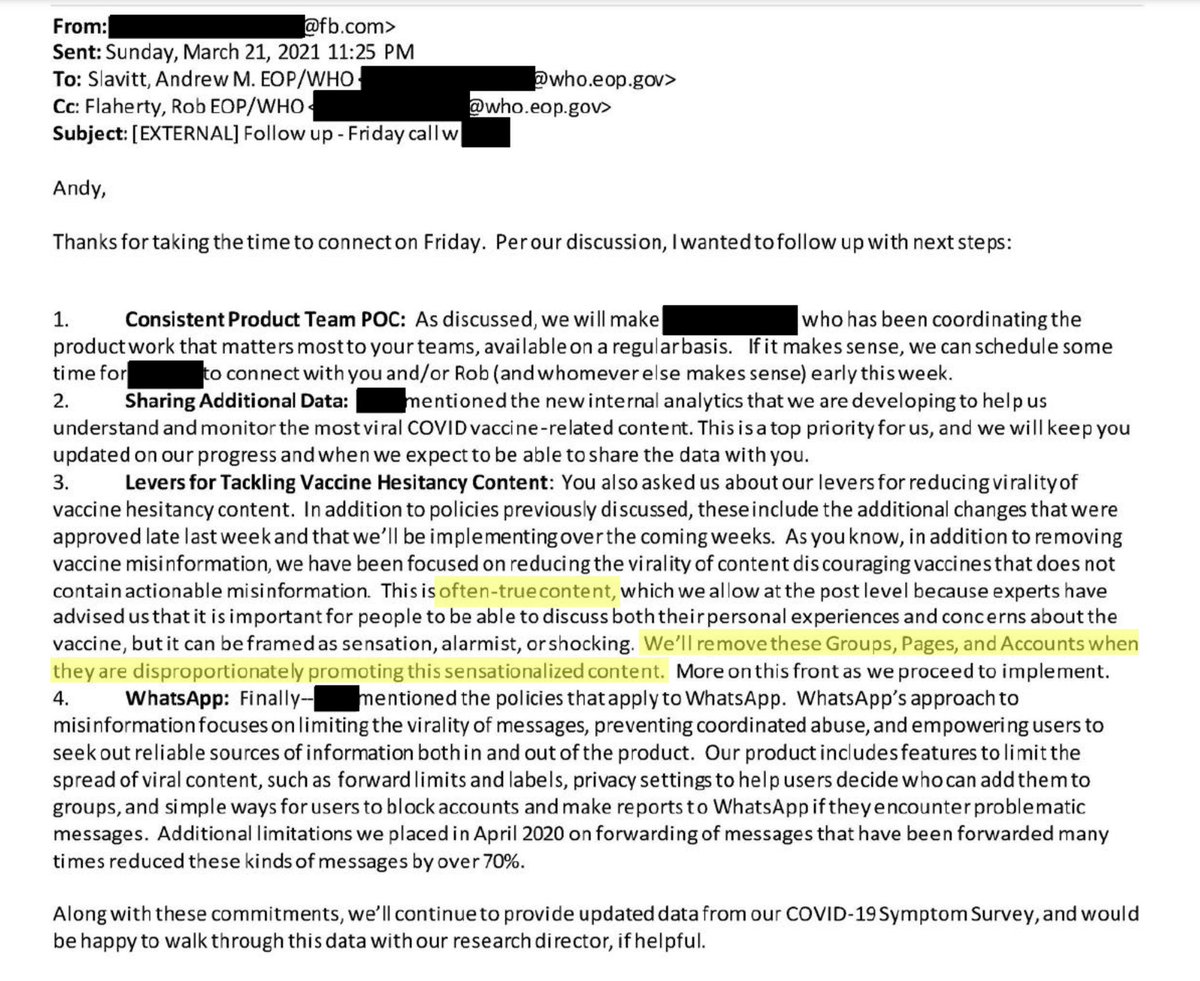
37.From the start, Stanford explained the Virality Project would essentially continue the work of its 2020 Election Integrity Partnership. “The same JIRA system from the EIP is up and running,” they wrote. 
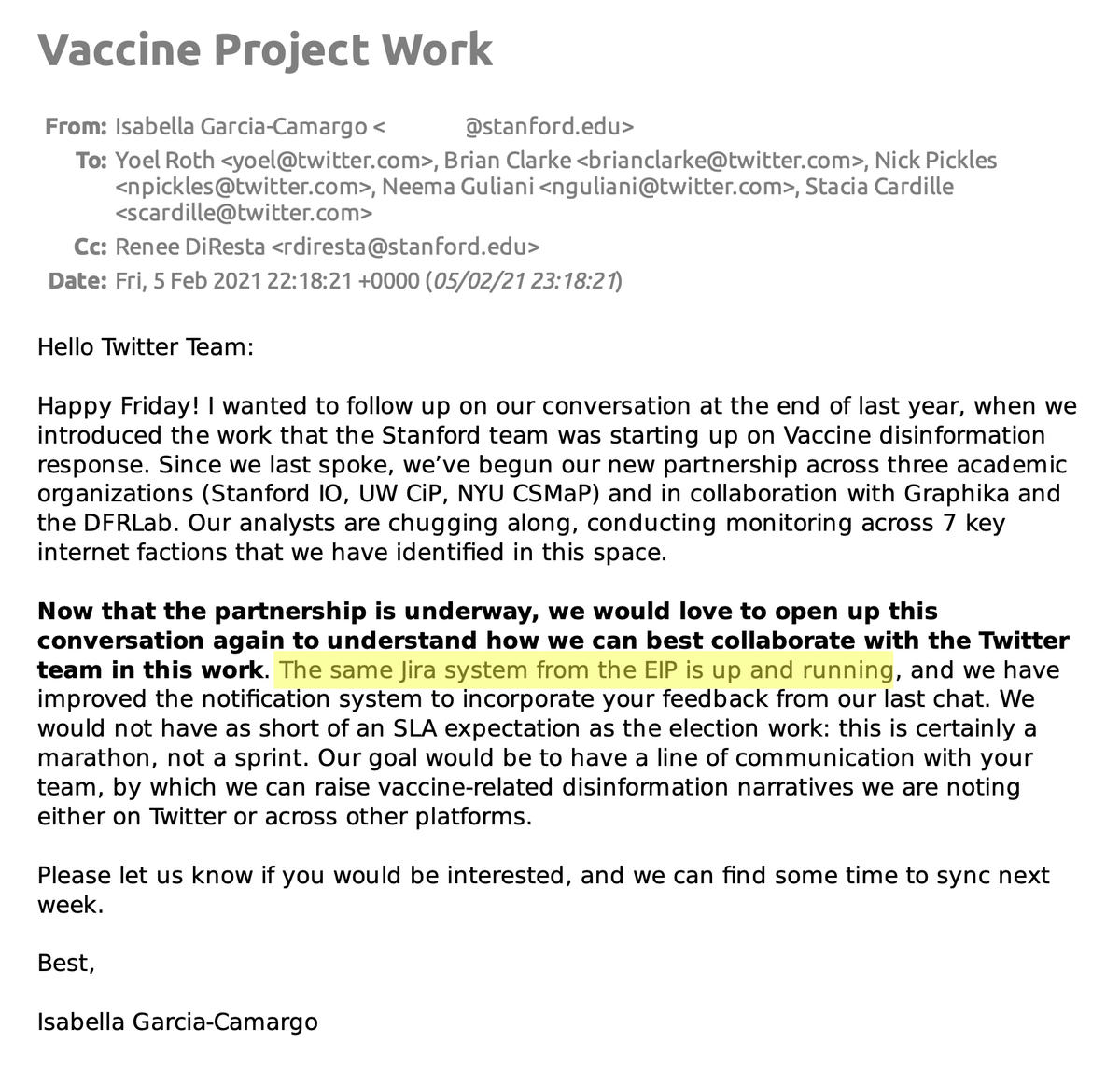
38. In the last #TwitterFiles thread, we posted a video of EIP Director Alex Stamos describing that project as Stanford trying to “fill the gap of things the government couldn’t do” legally. (h/t Foundation for Freedom Online).
39.We also showed video in which Stamos introduced EIP Research Director Renee DiResta as having “worked for the CIA.” DiResta in 2021-2022 would be listed as a “Stanford scholar,” “leading” the Virality Project. 
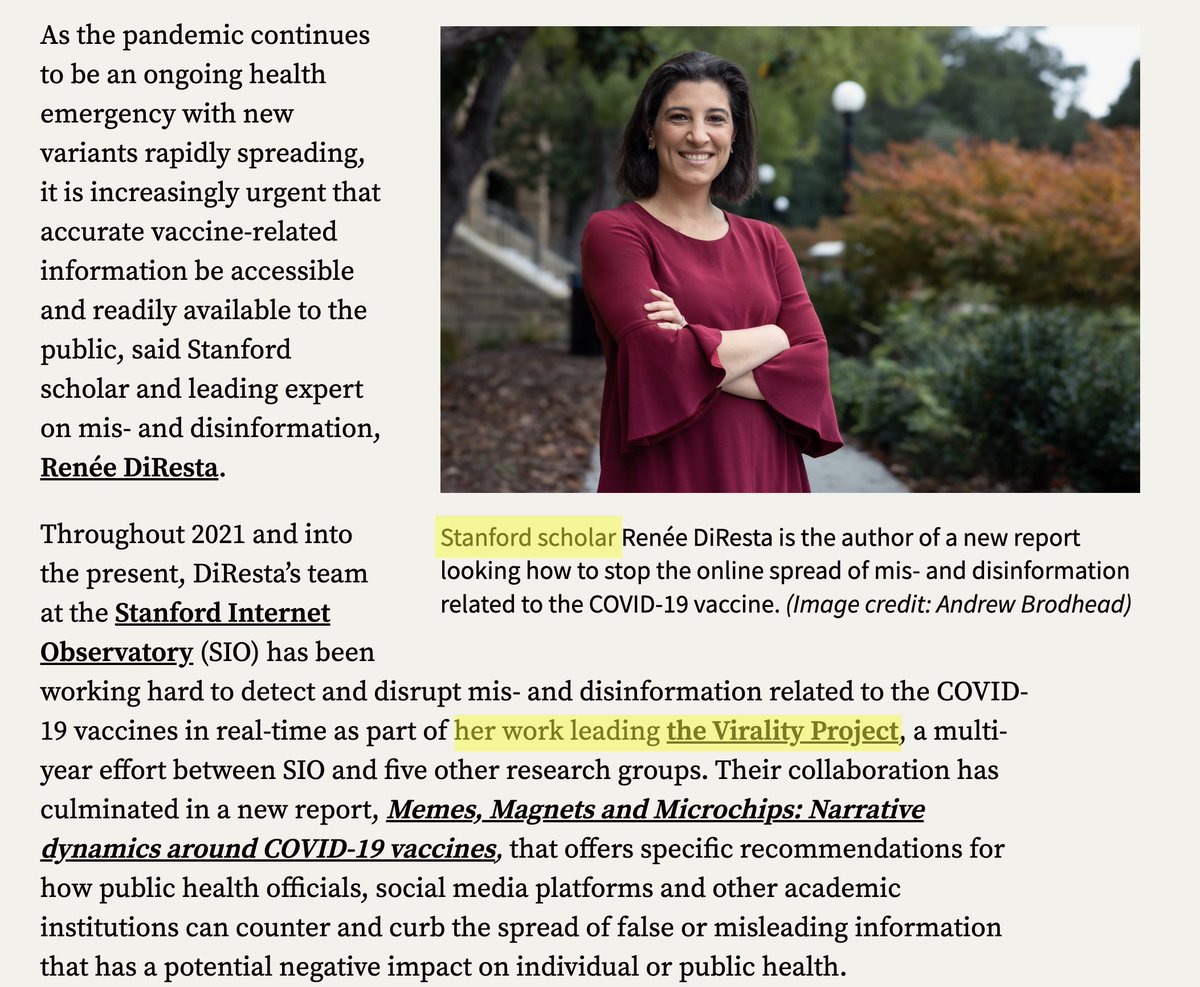
40. By October 2020, Stamos was hinting at the direction of the future Virality Project, telling a national cybersecurity conference that the “Anti-Disinformation” mission needed a new focus.
41.“We talk way too much about foreign…it's sexy, and it's fun, and it's a little bit cold warry,” Stamos said, adding the “vast majority” of problems were now domestic. “We have like an 80-20 breakdown... I think that needs to be flipped.”
42.VP’s partners: DOD-funded Graphika, the National Science Foundation funded Center for an Informed Public (CIP), the GEC-funded DFRLab, and the NYU Center for Social Media and Politics, or CSMaP. 




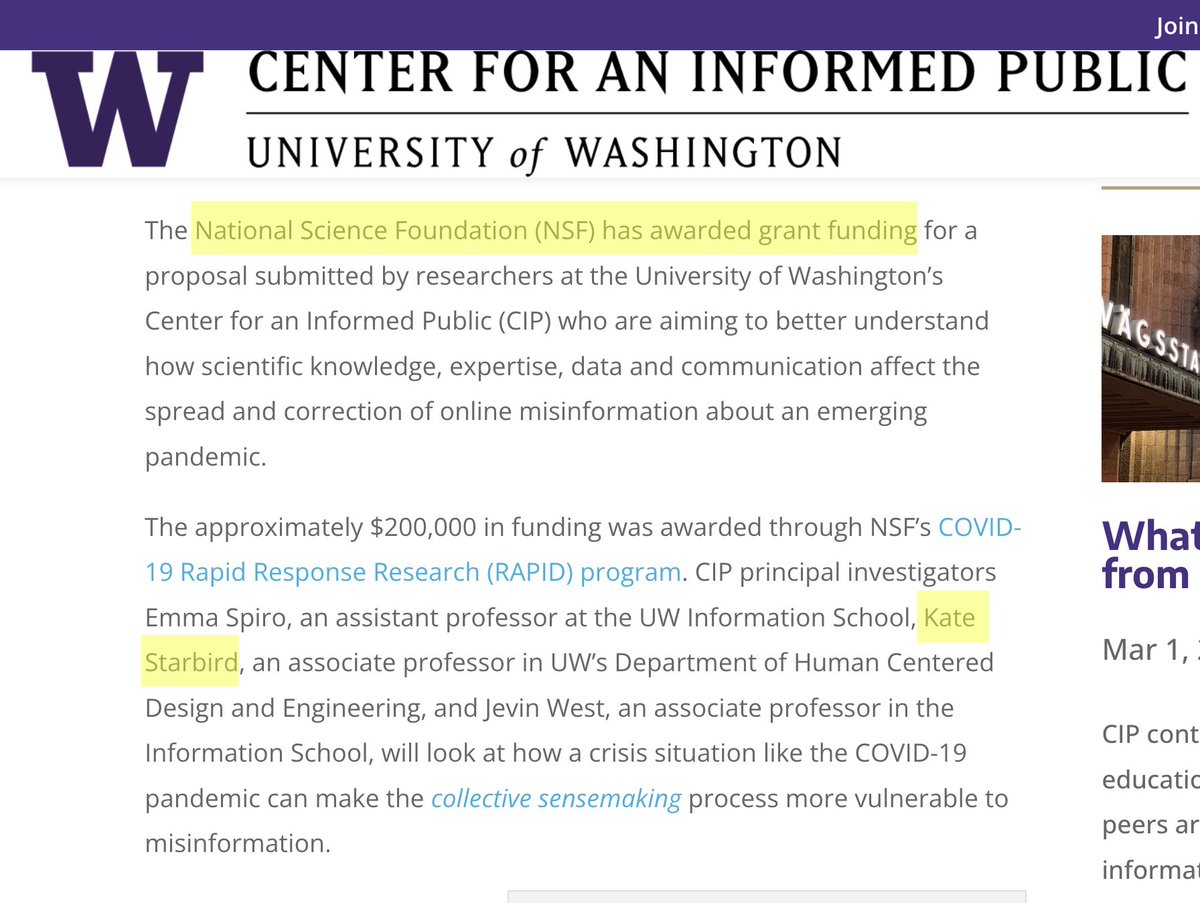
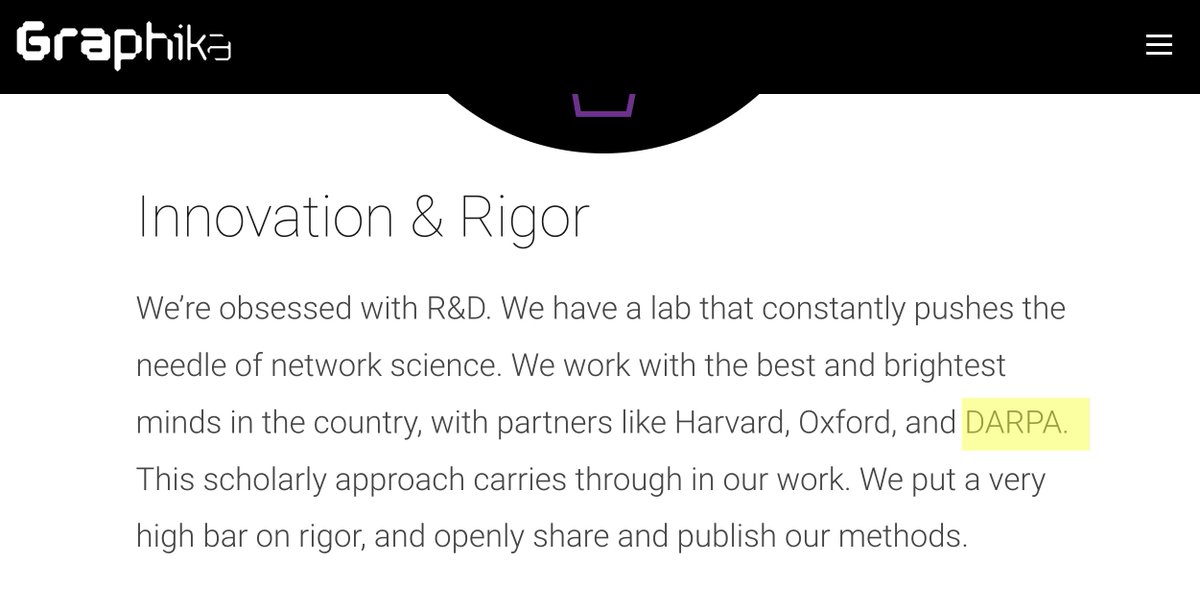
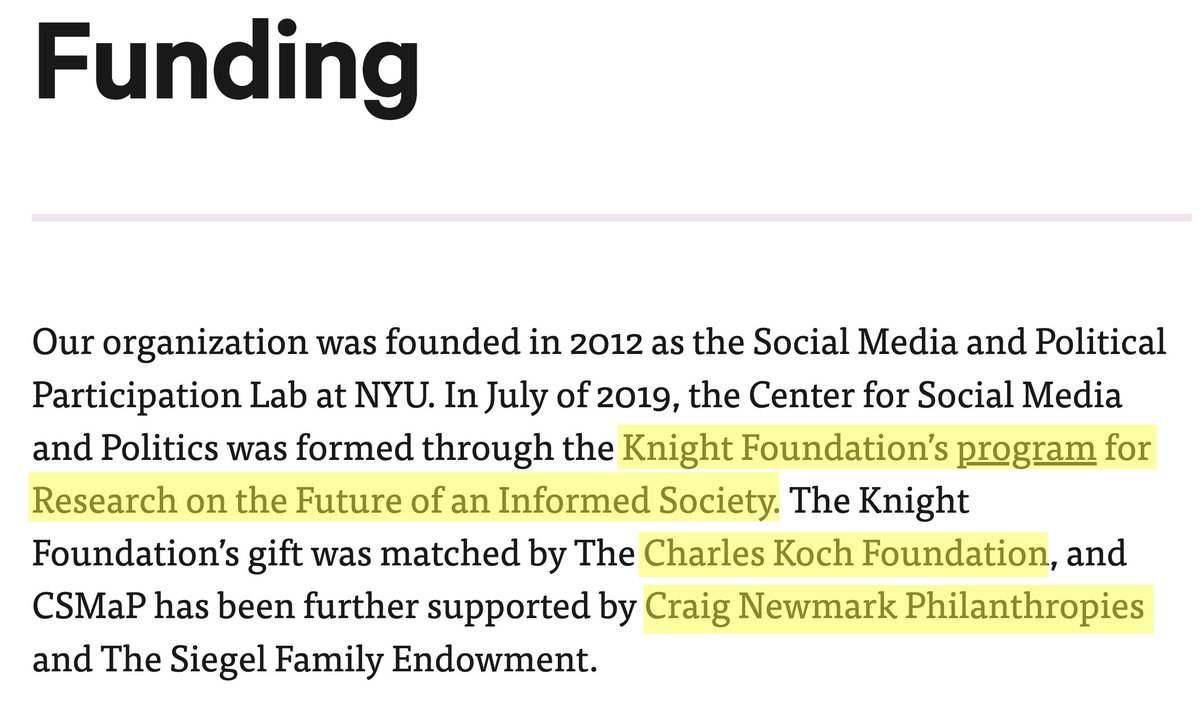
43.VP would later say it partnered with “several government agencies,” including the Office of the Surgeon General and the CDC. It reportedly also worked with DHS’s CISA (Cybersecurity and Infrastructure Security Agency) and GEC, among others. 


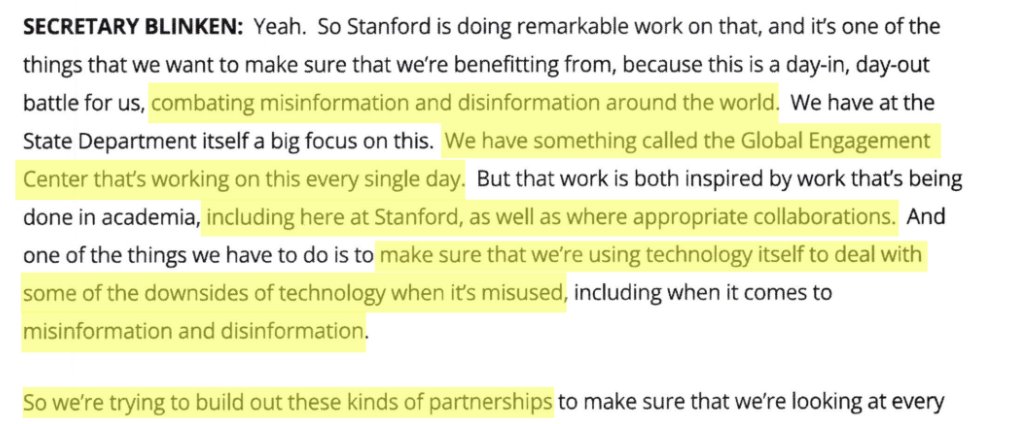
44.To recap: America’s information mission went from counterterrorism abroad, to stopping “foreign interference” from reaching domestic audiences, to 80% domestic content, much of it true. The “Disinformation Governance Board” is out; but truth-policing is not.
45. Special thanks to @NAffects for hard work on this story, with @Techno_Fog, @ShellenbergerMd, @bergerbell, @SchmidtSue1, @aaronjmate, and the racket.news team. Thanks especially to @MikeBenzCyber. Searches conducted by a third party; material may be left out.
• • •
Missing some Tweet in this thread? You can try to
force a refresh



